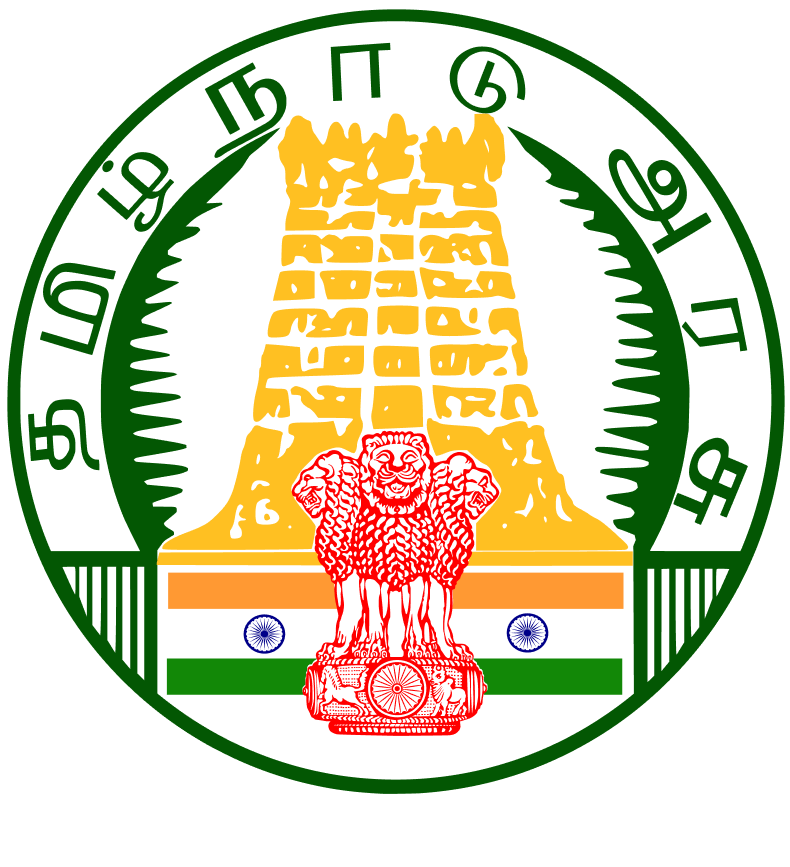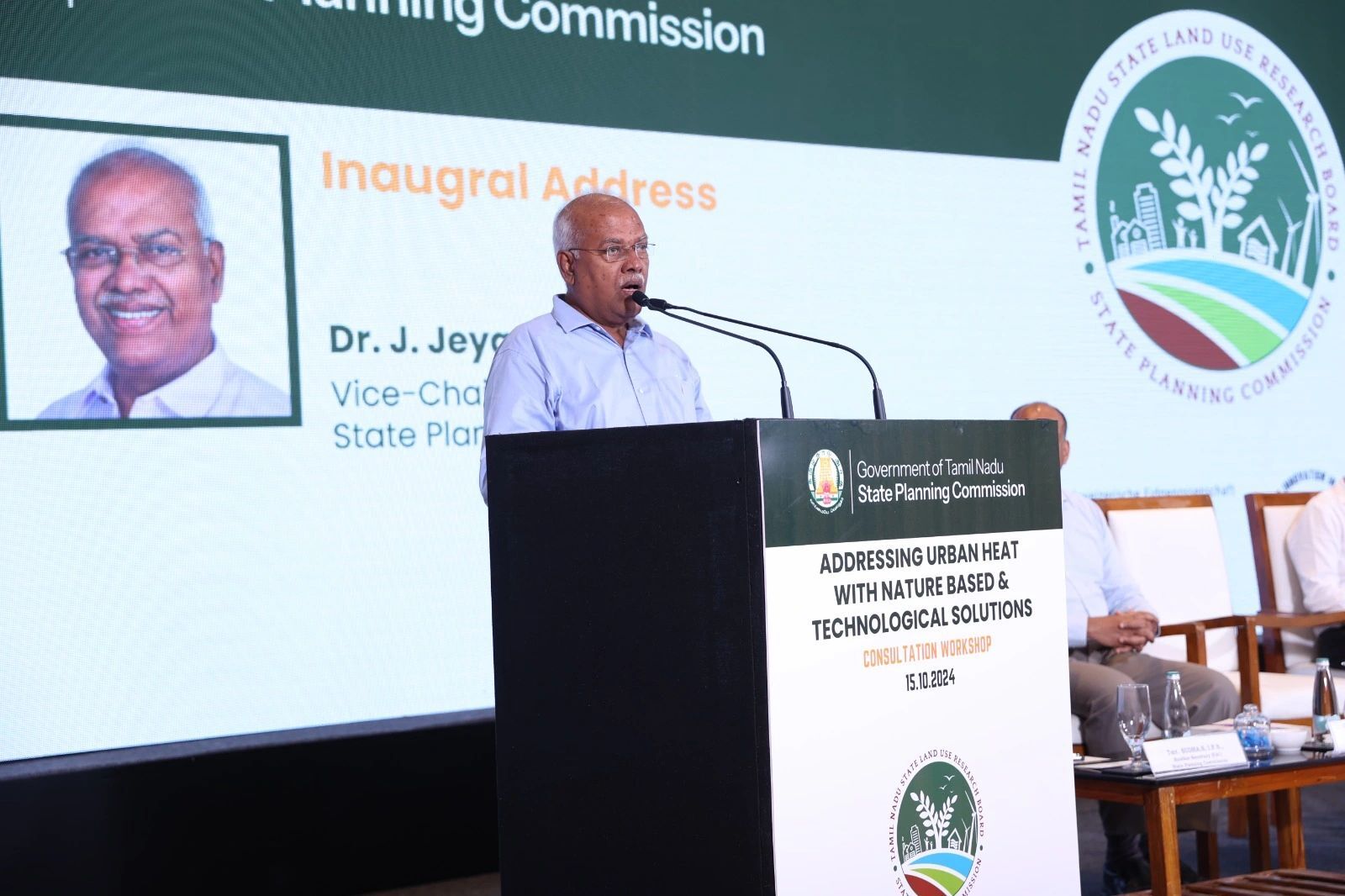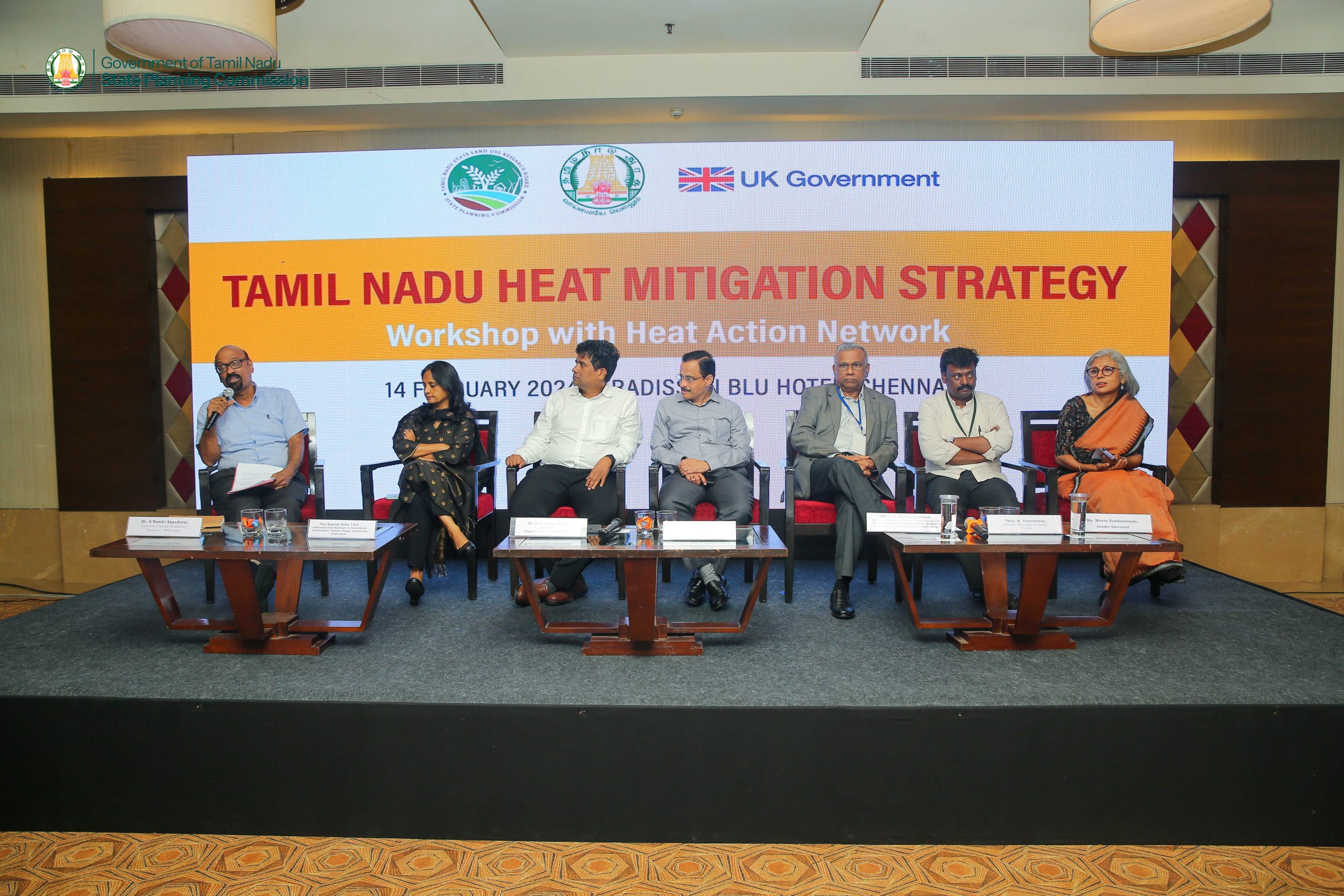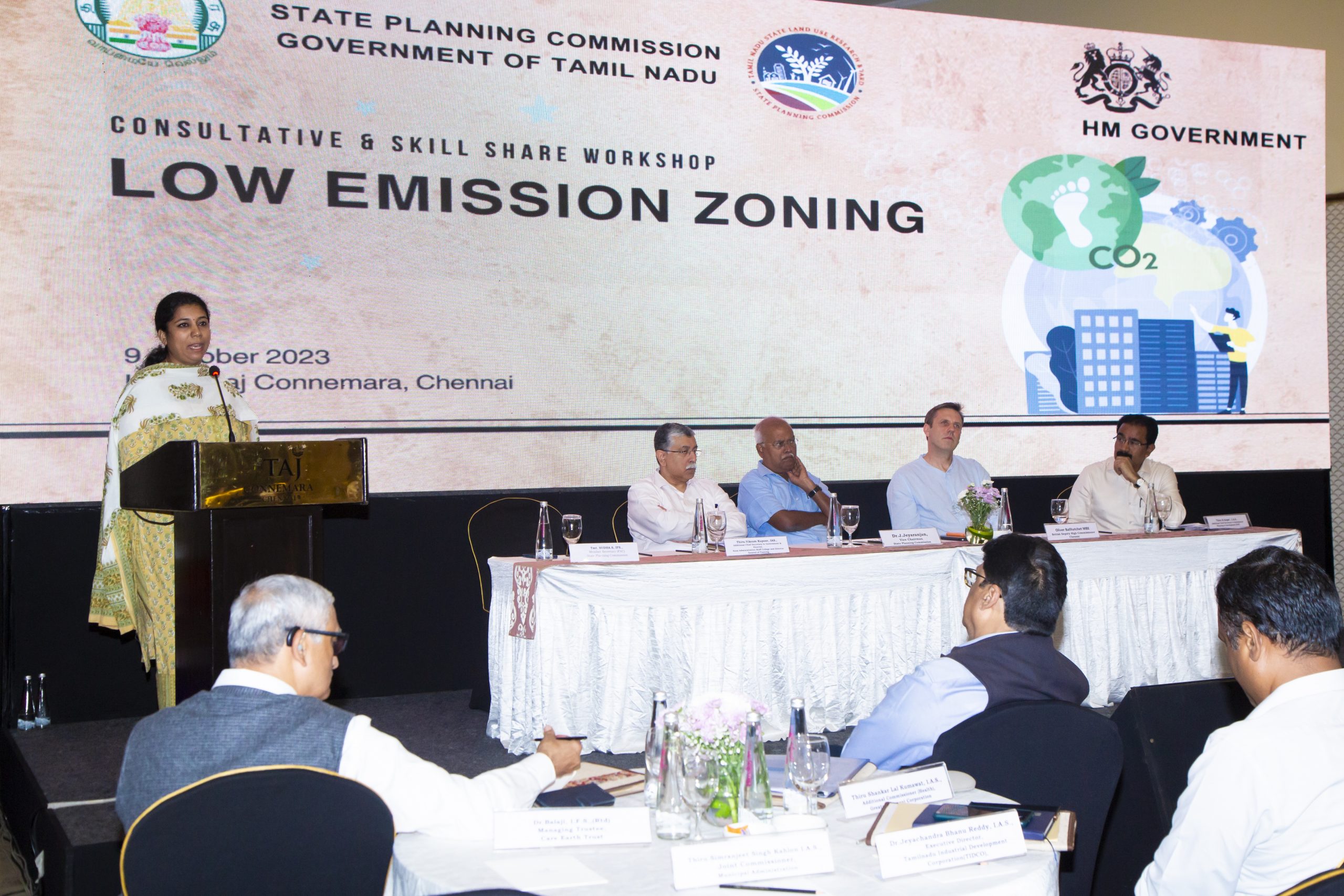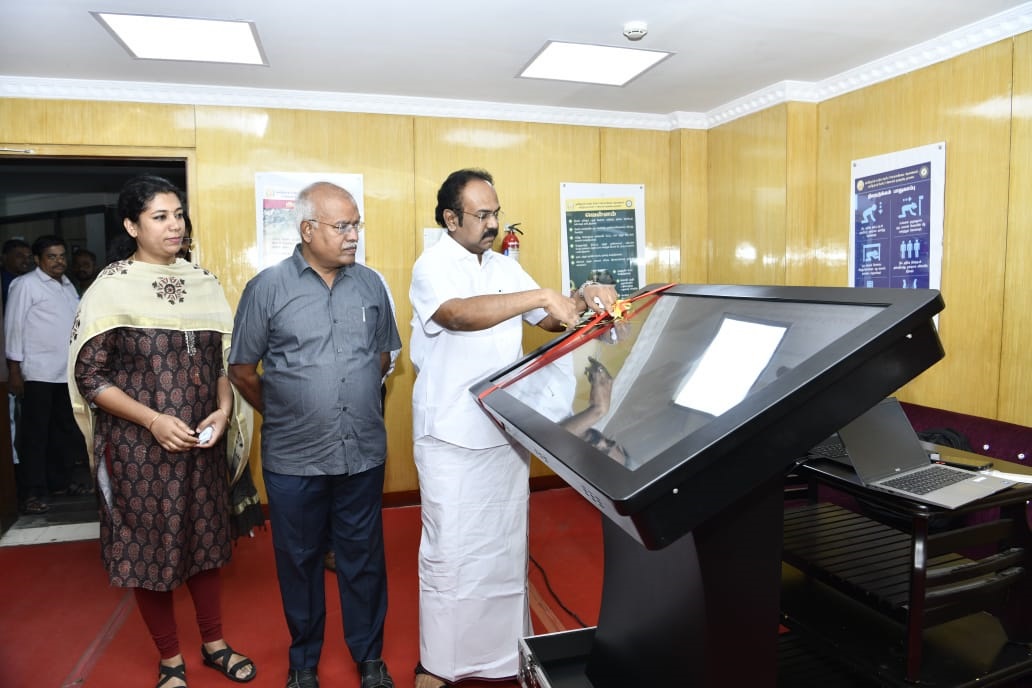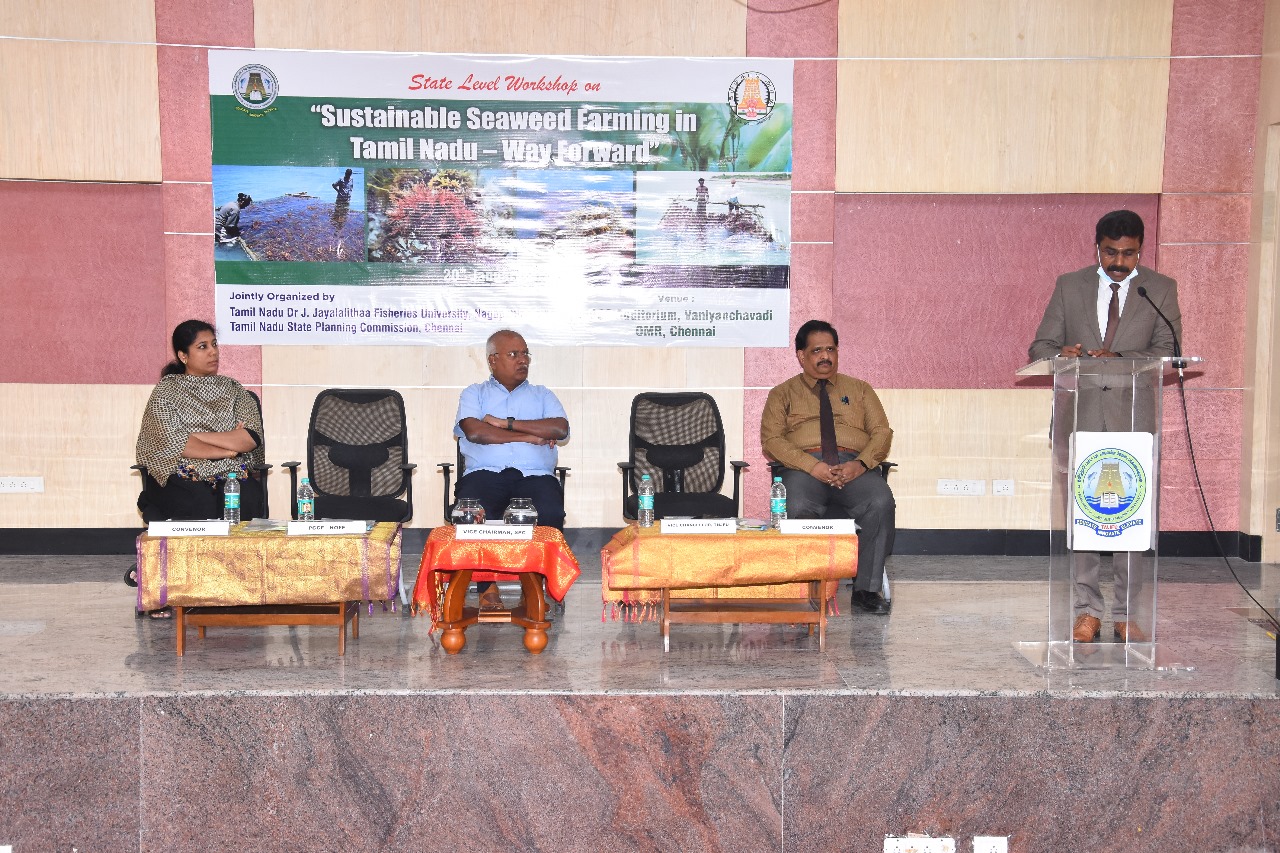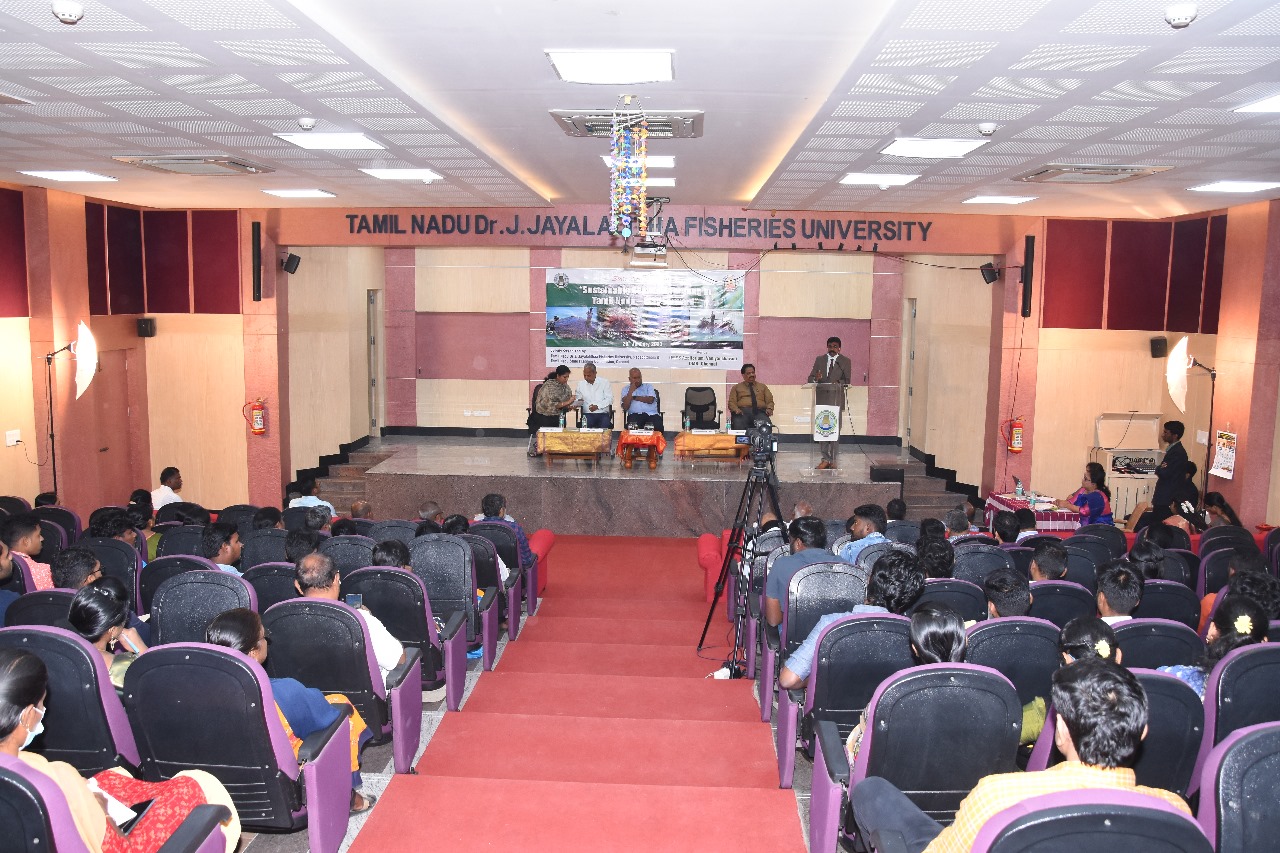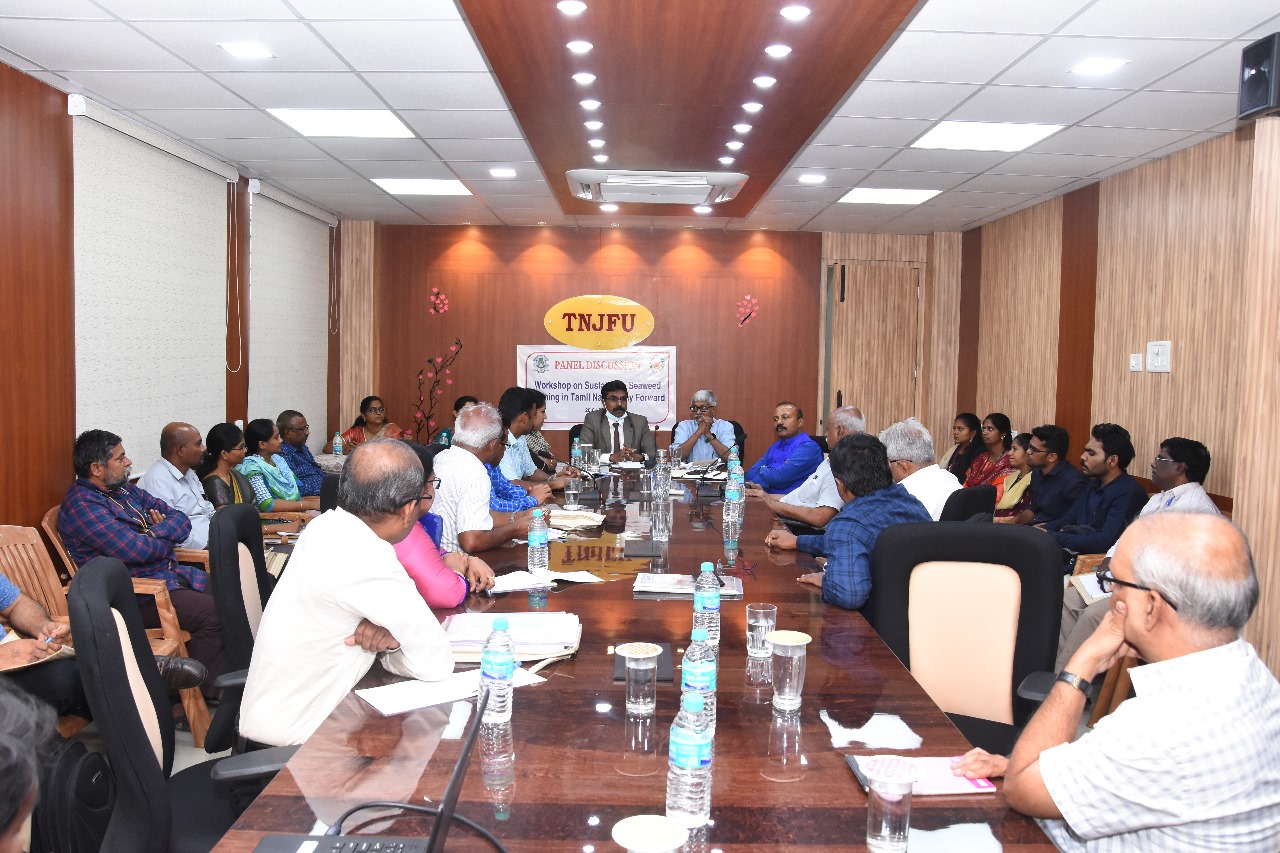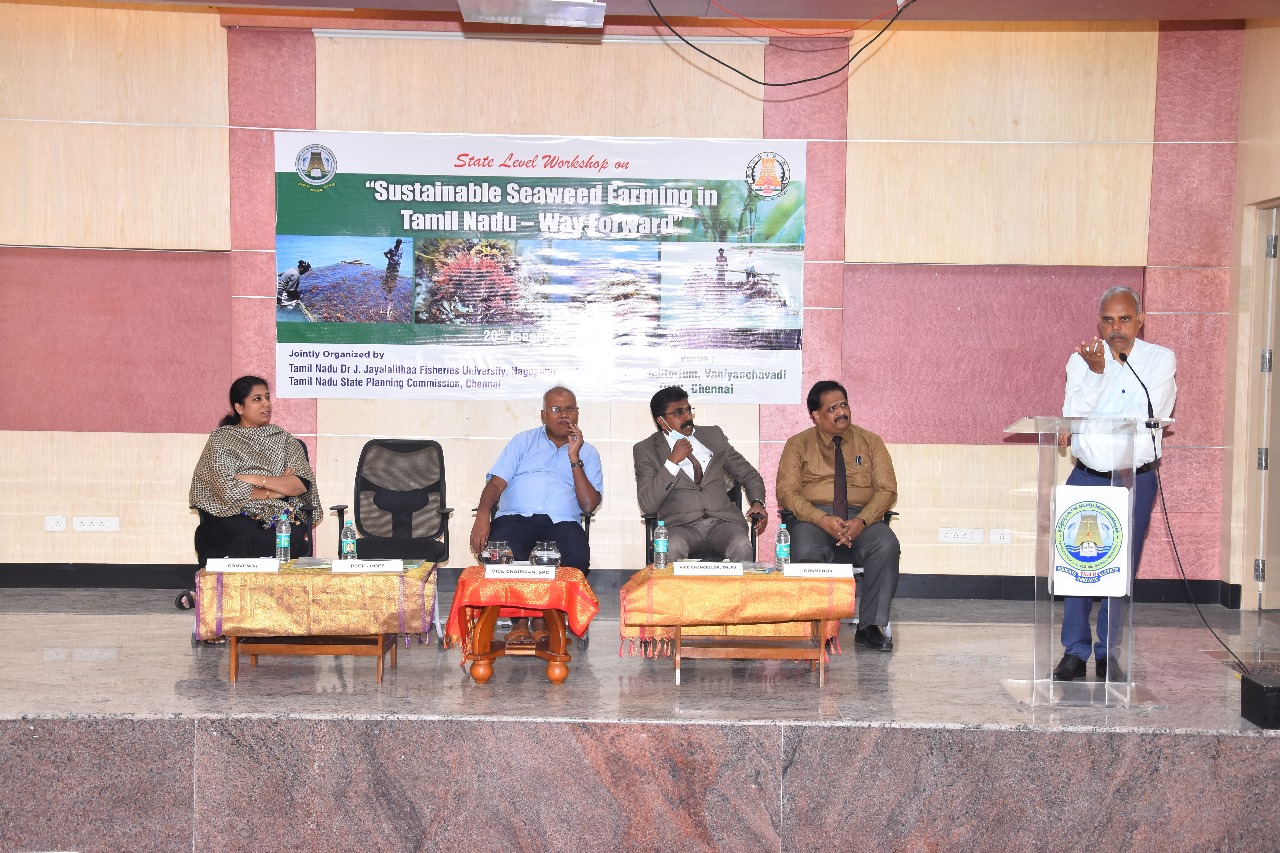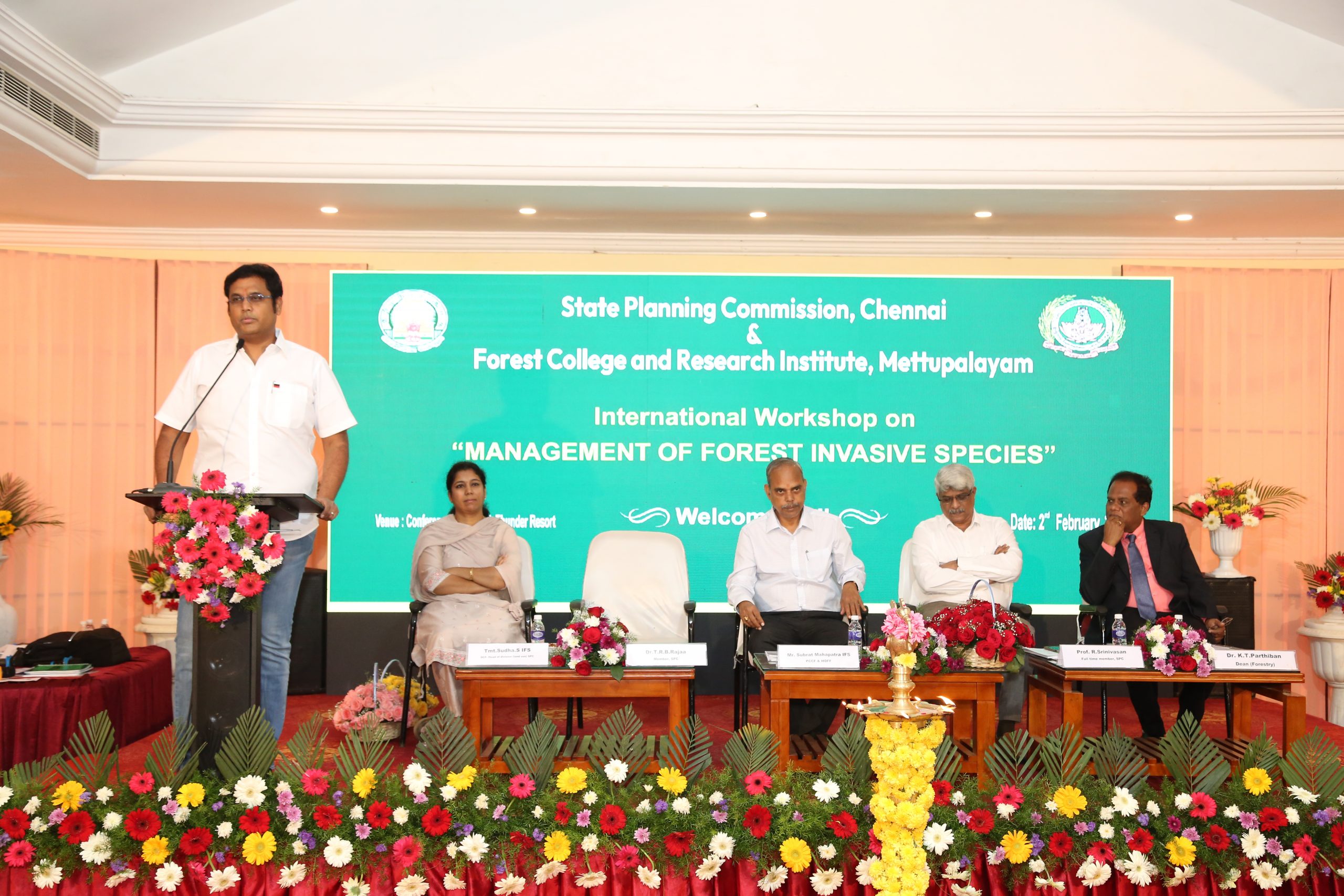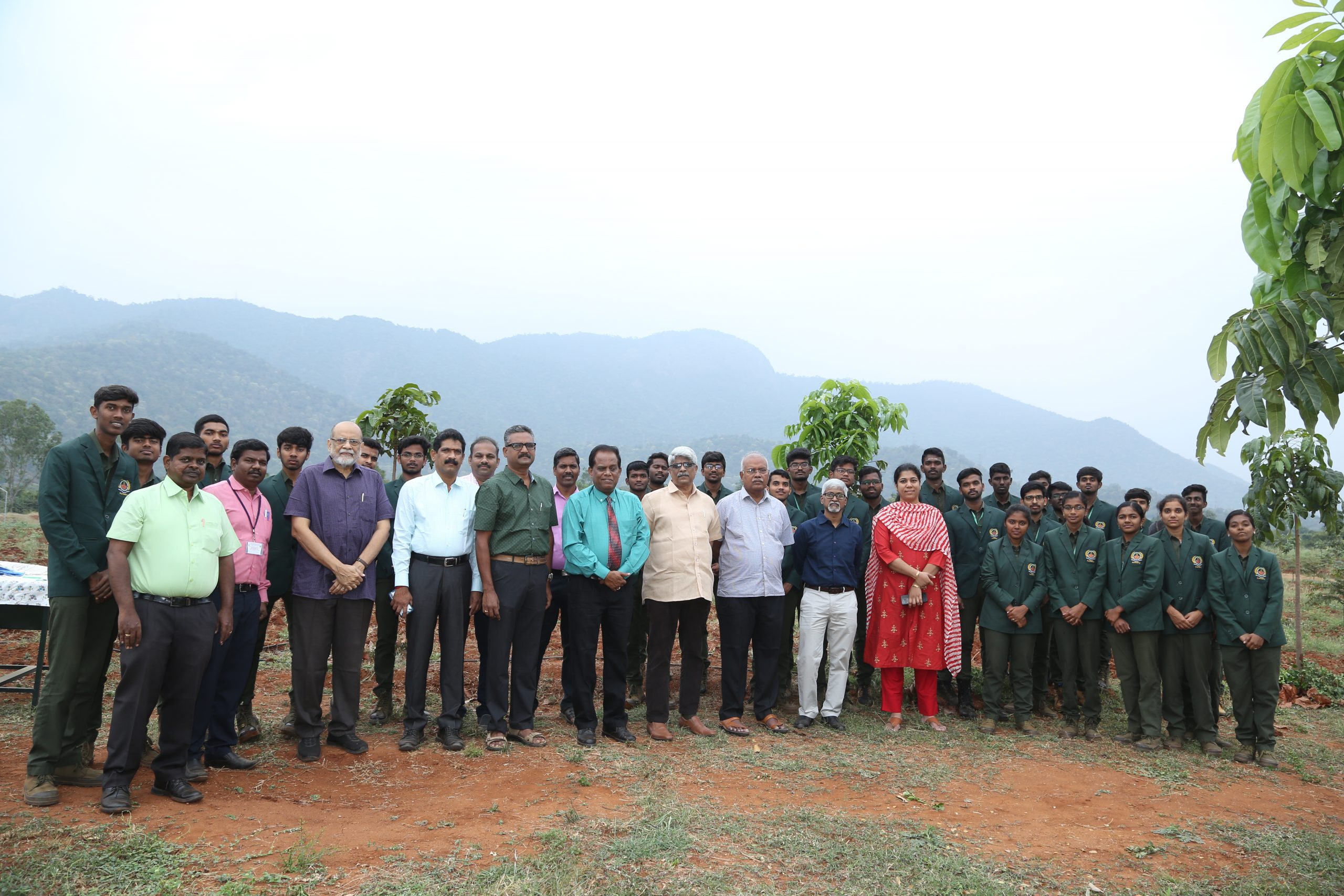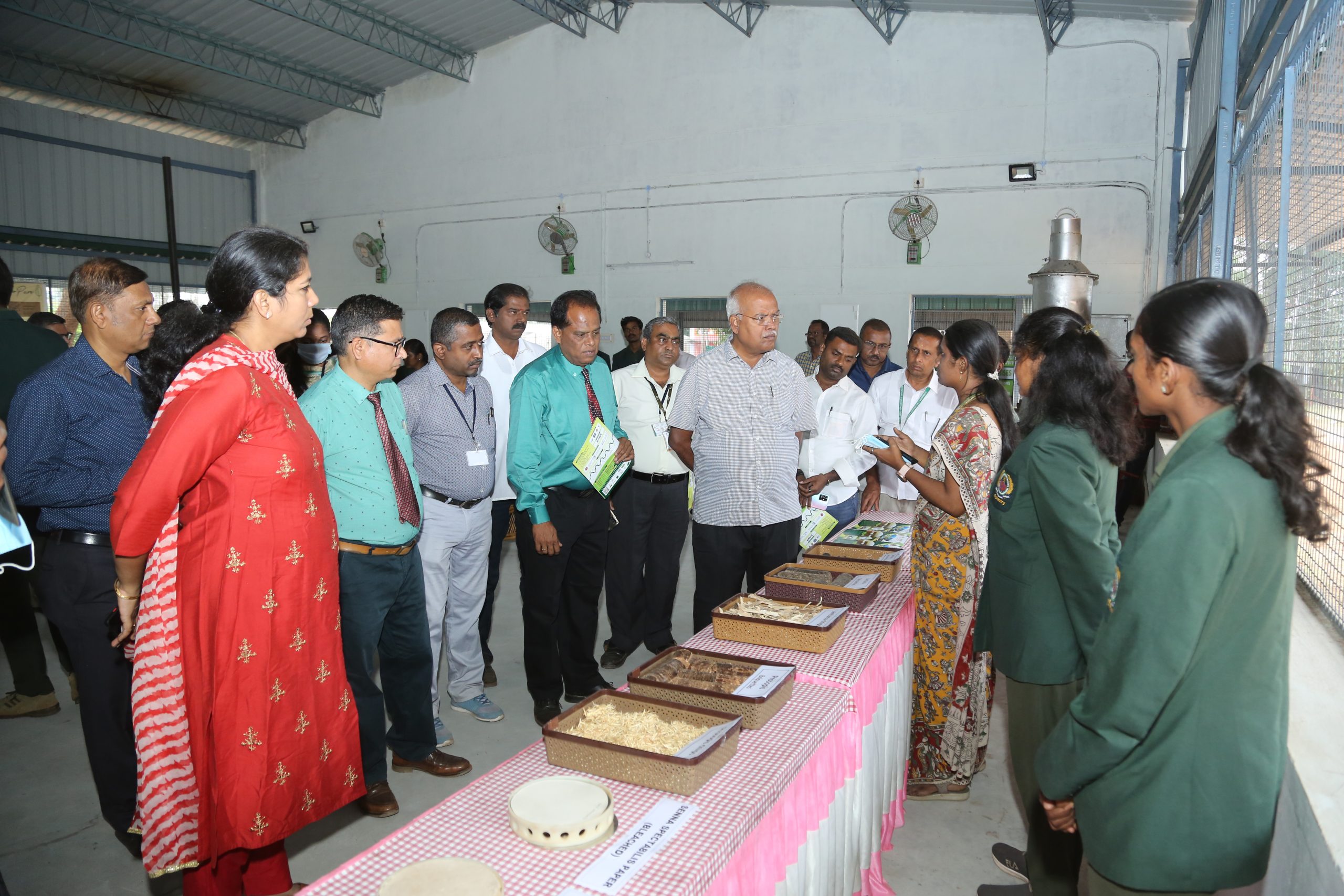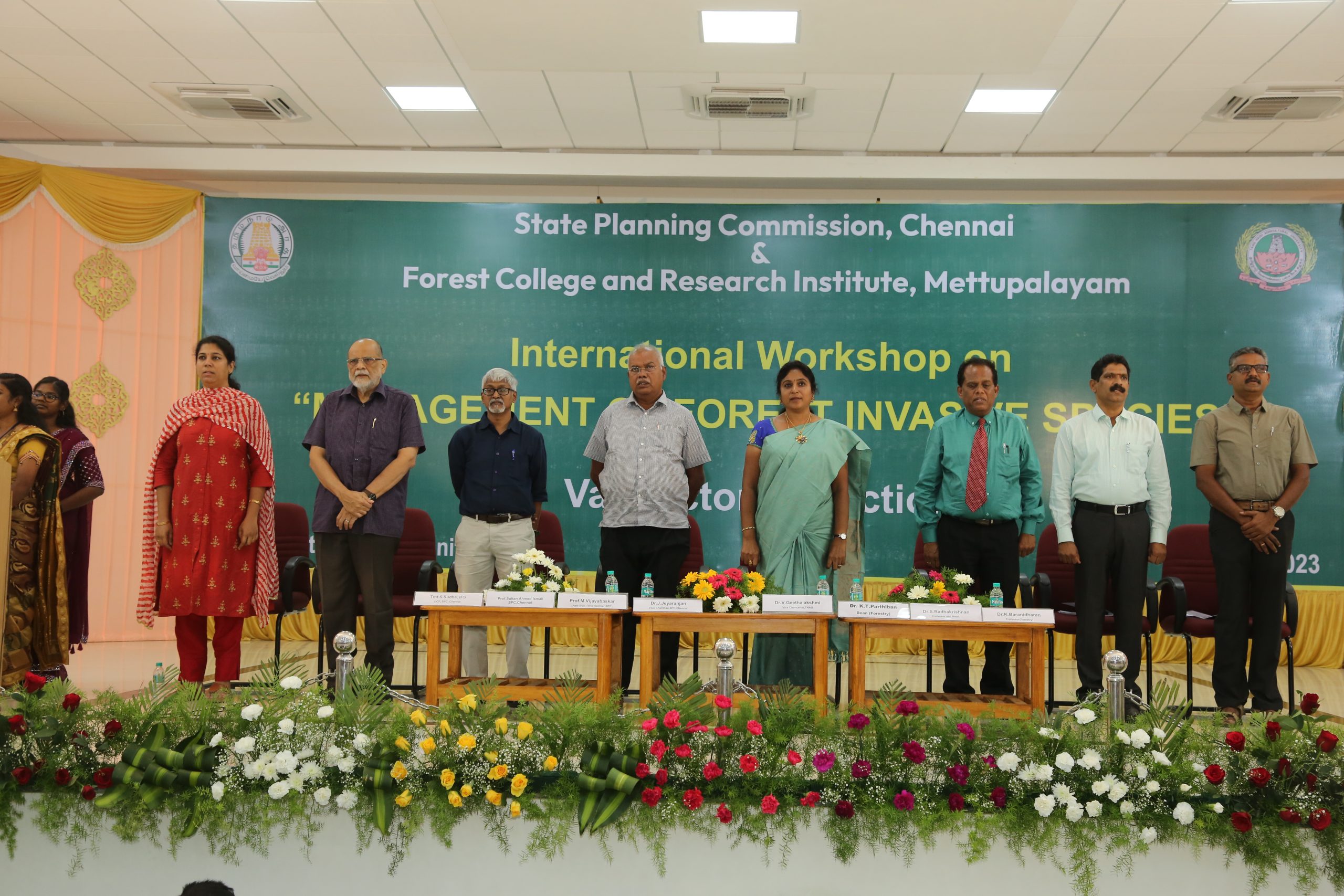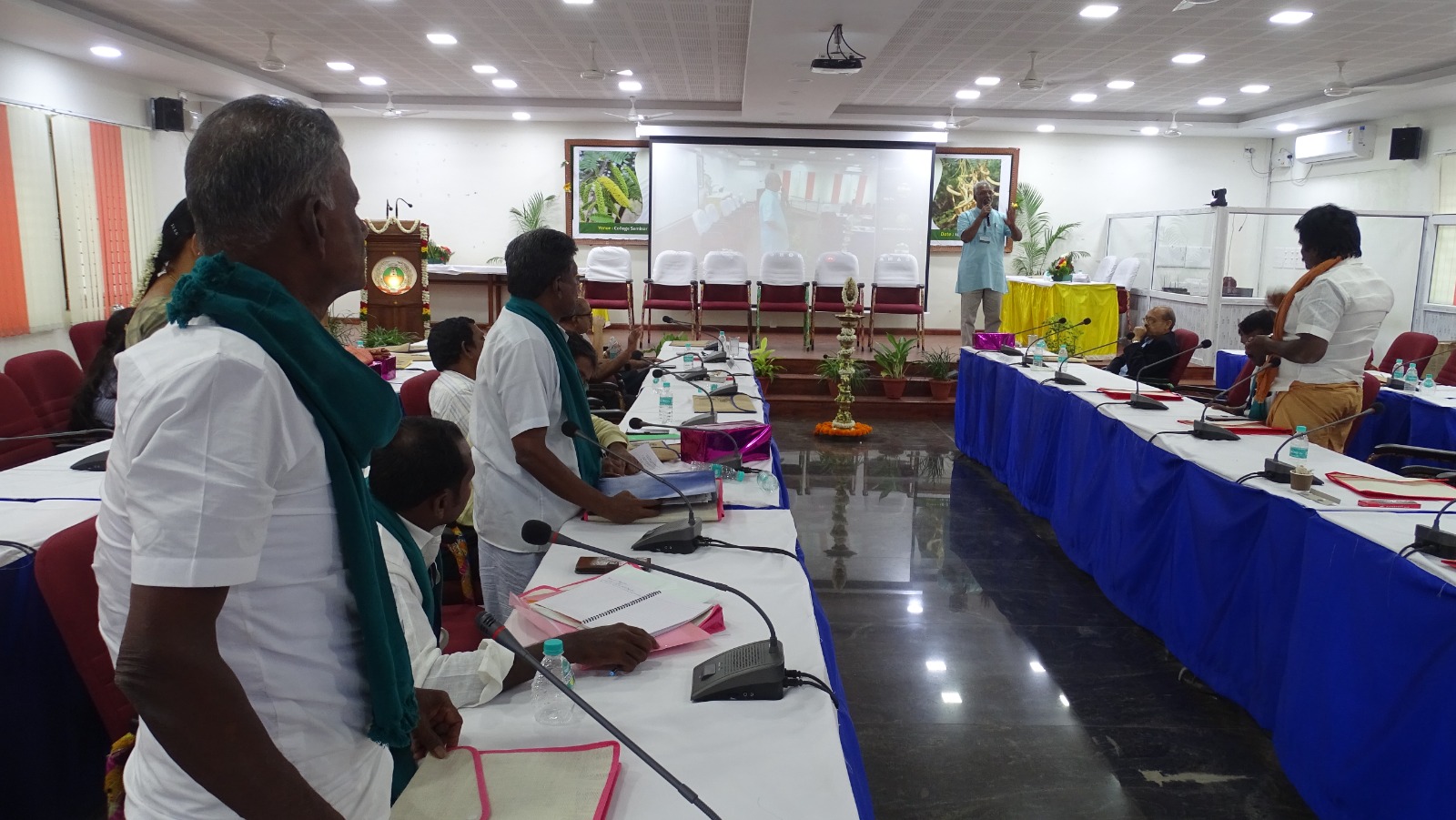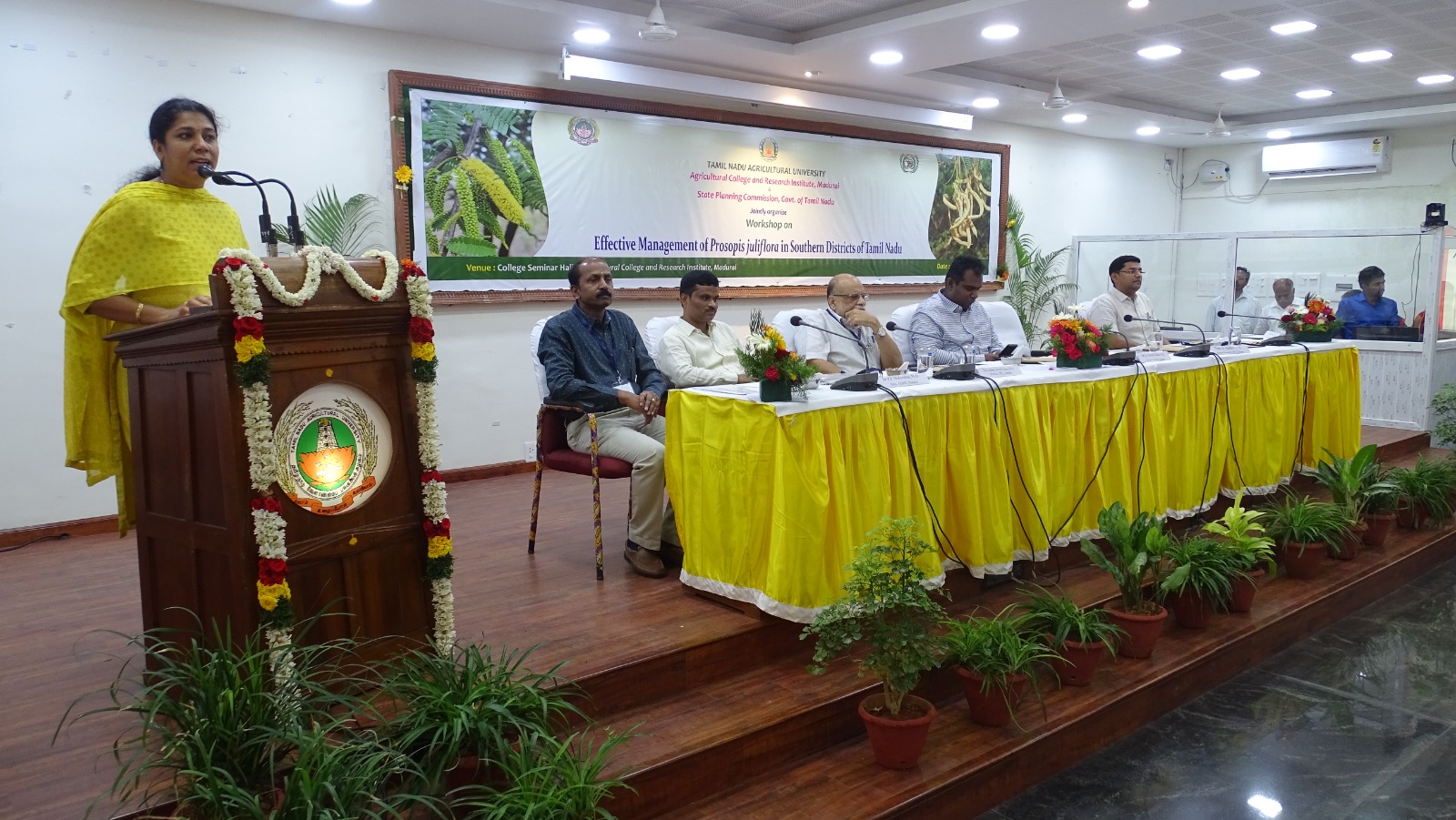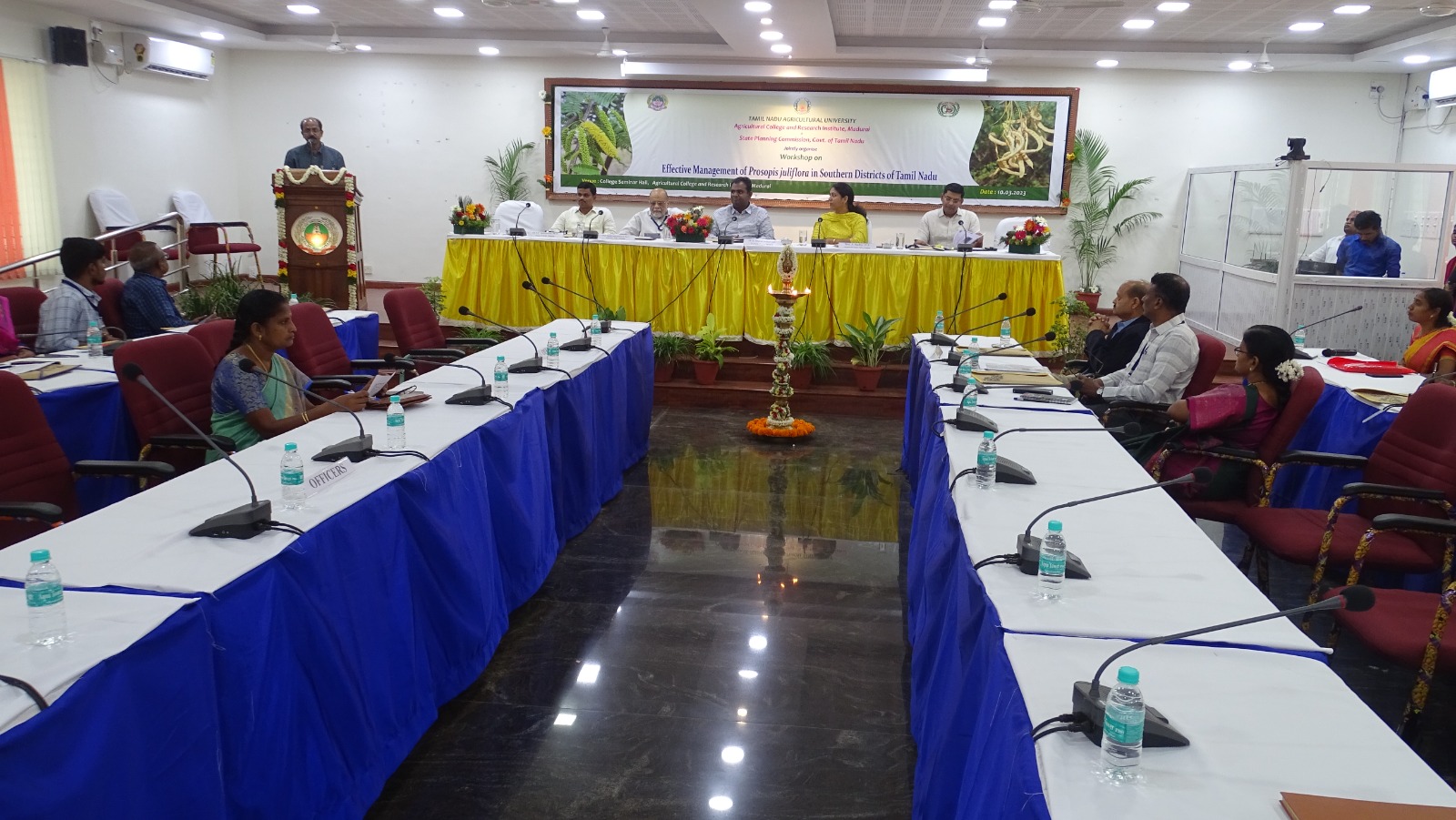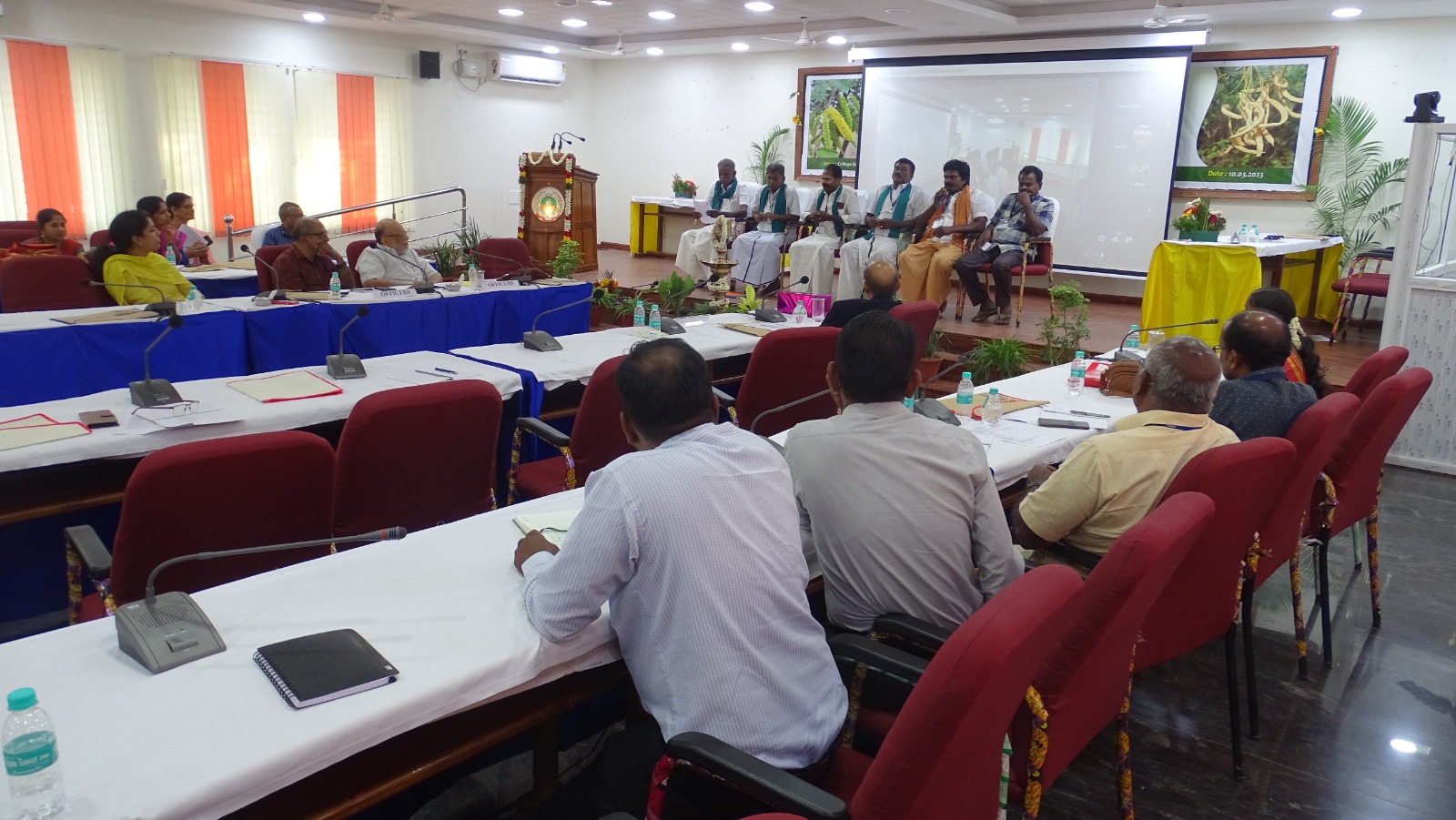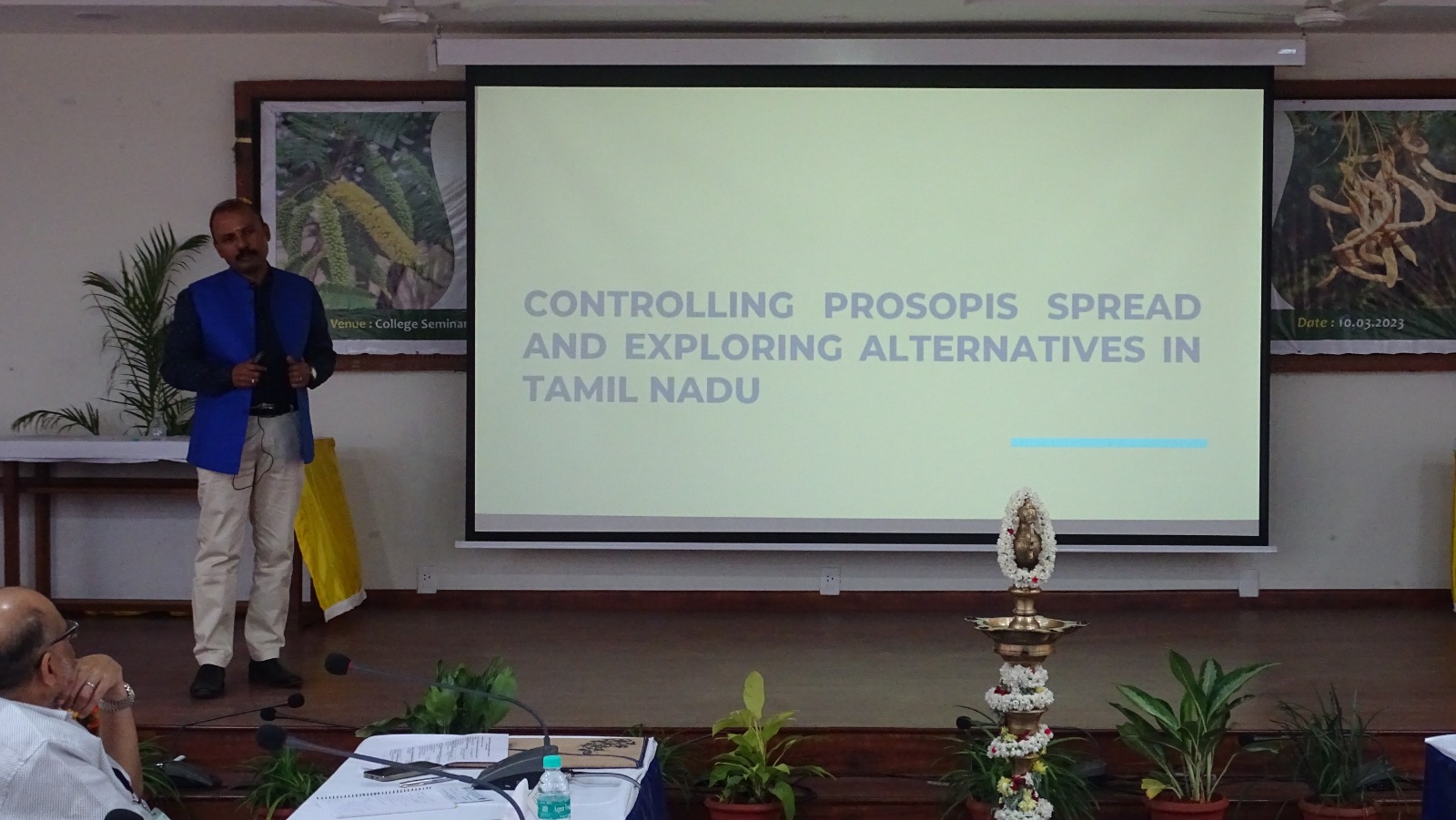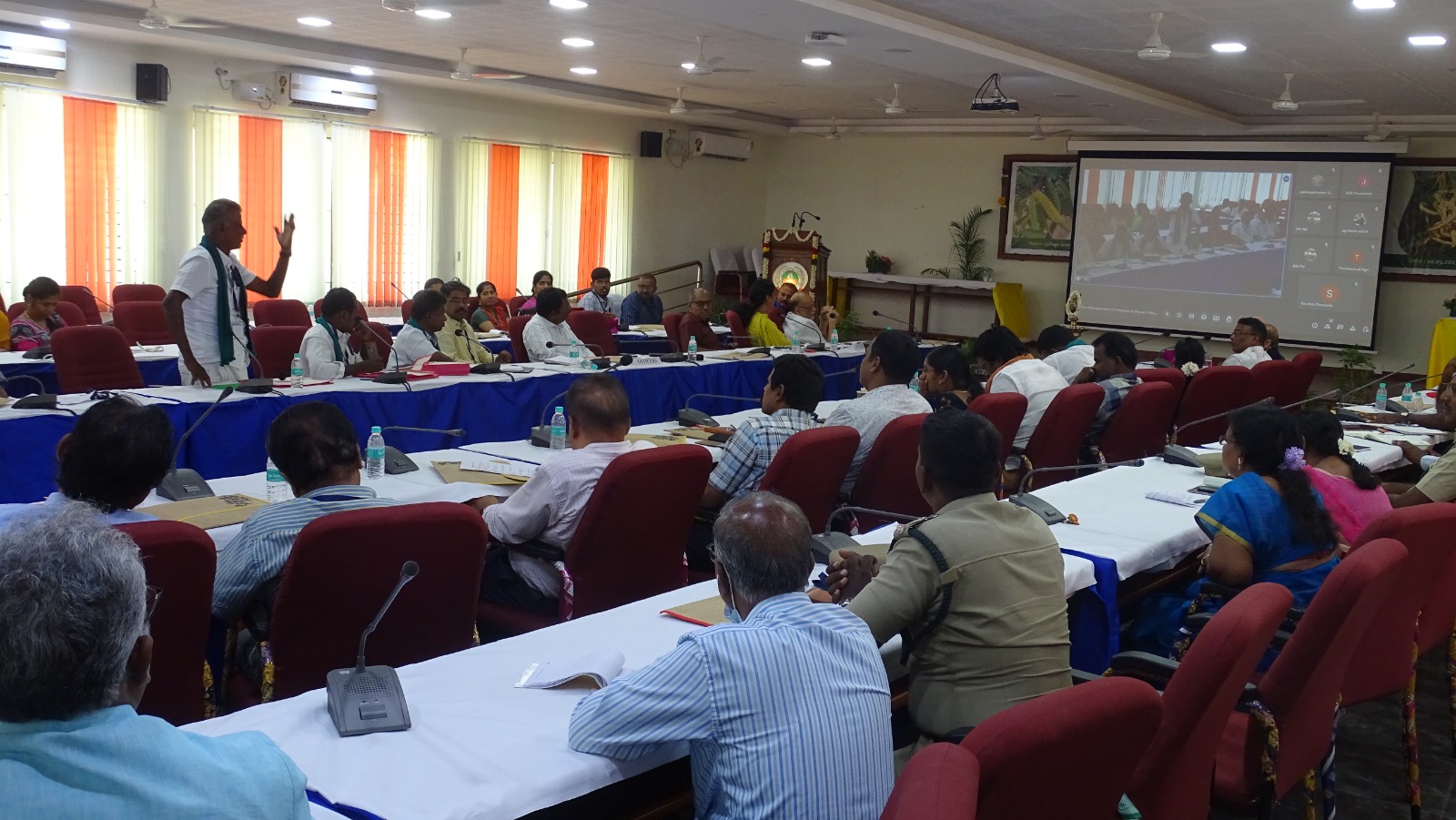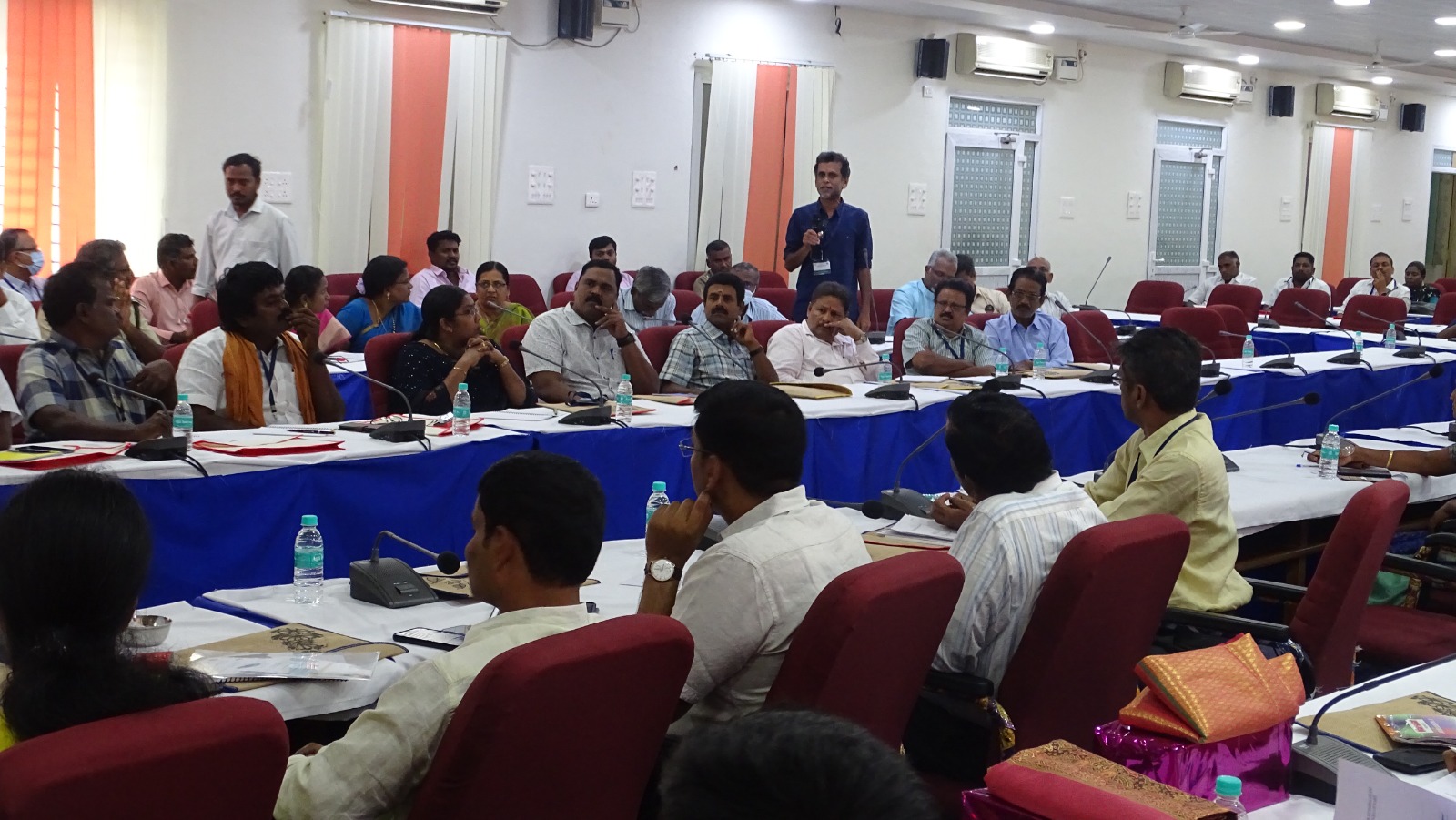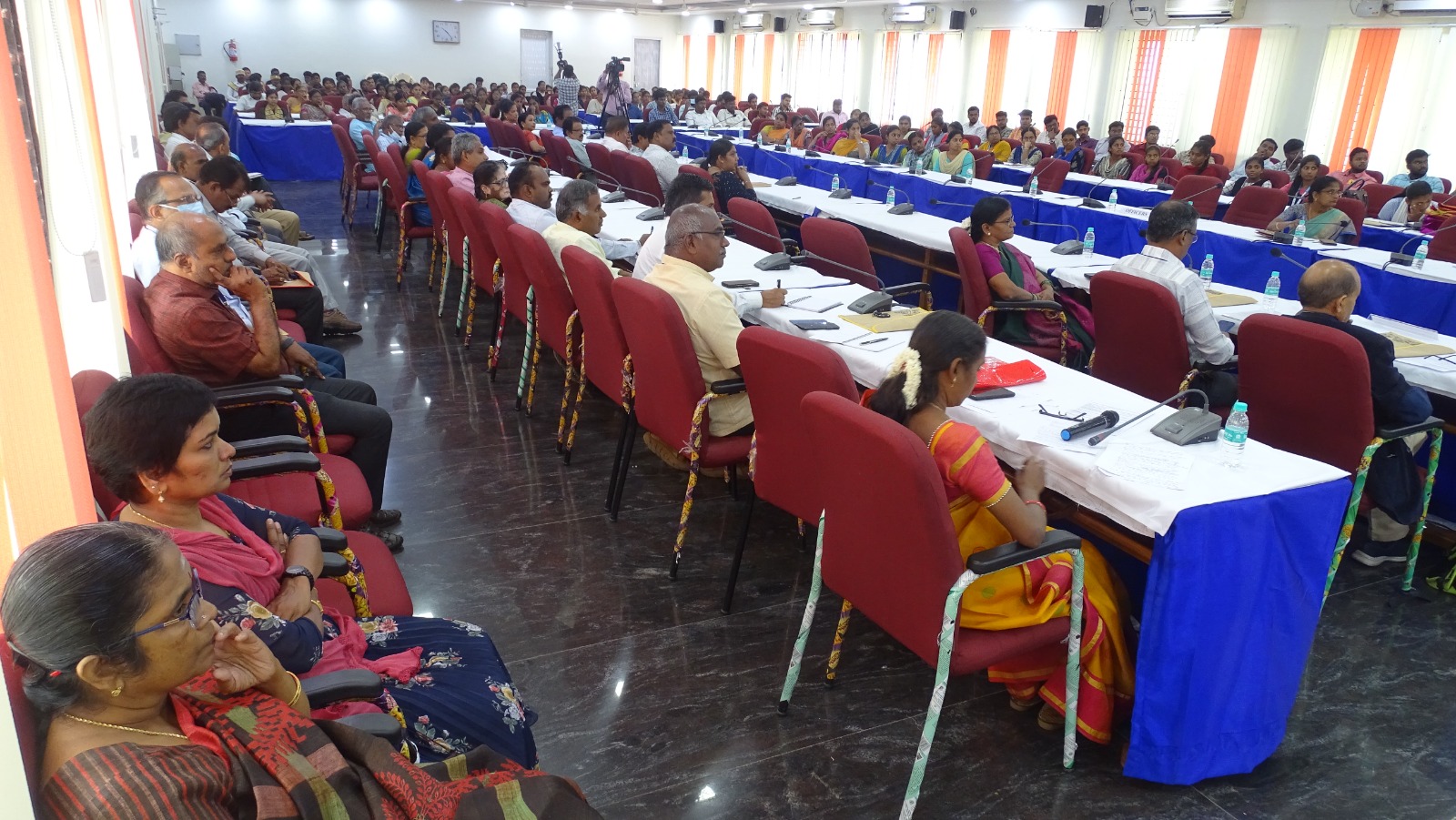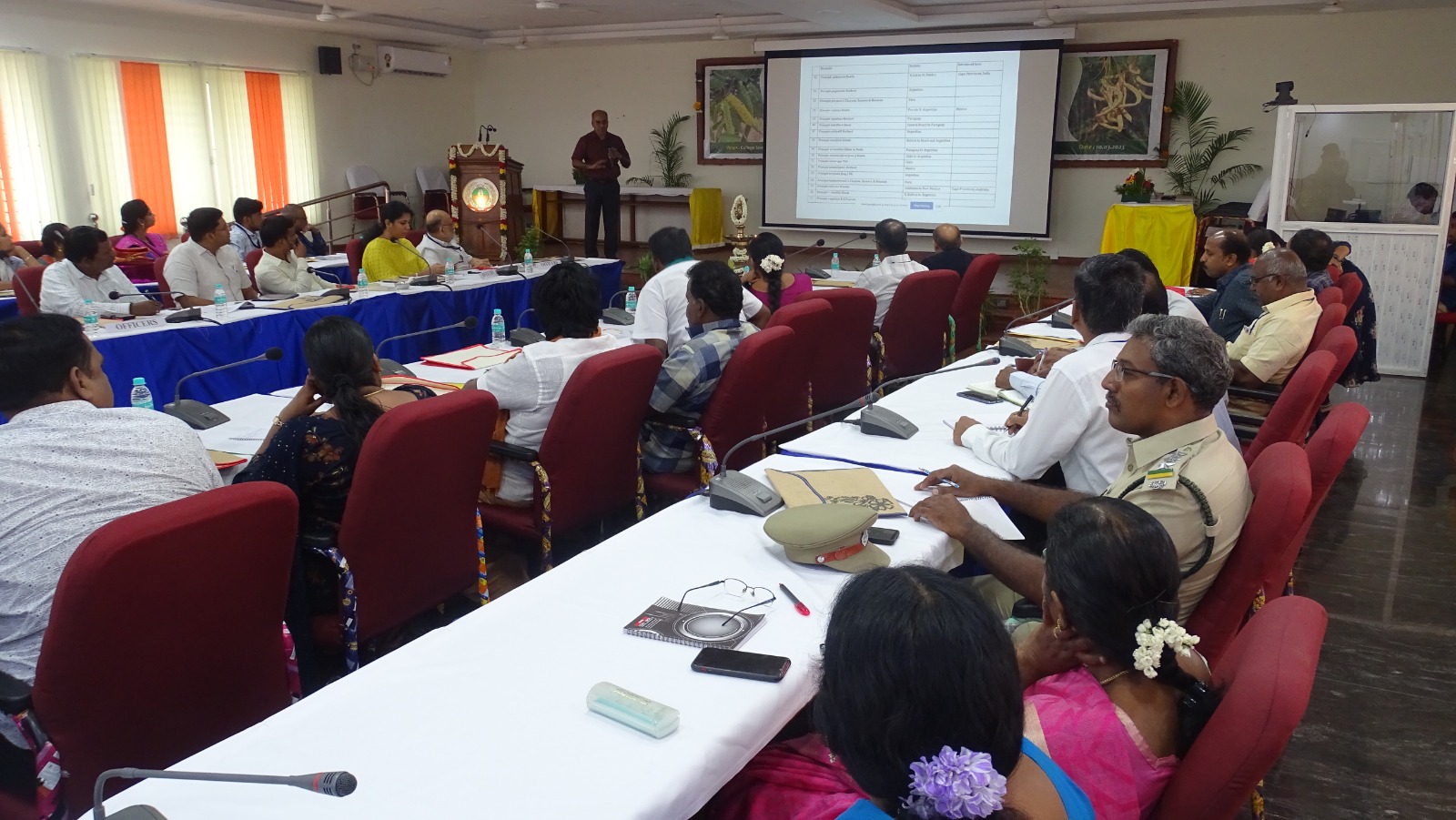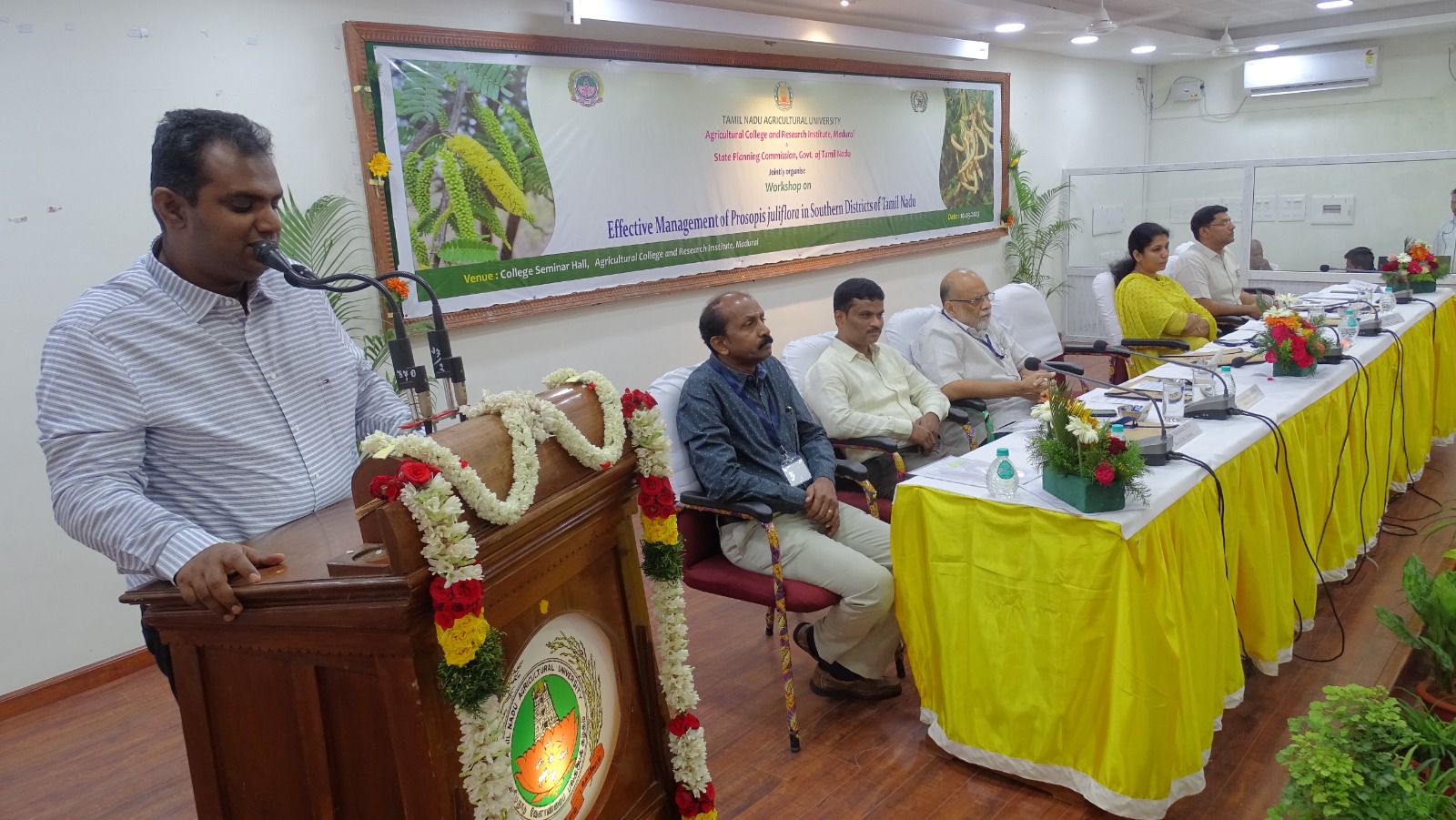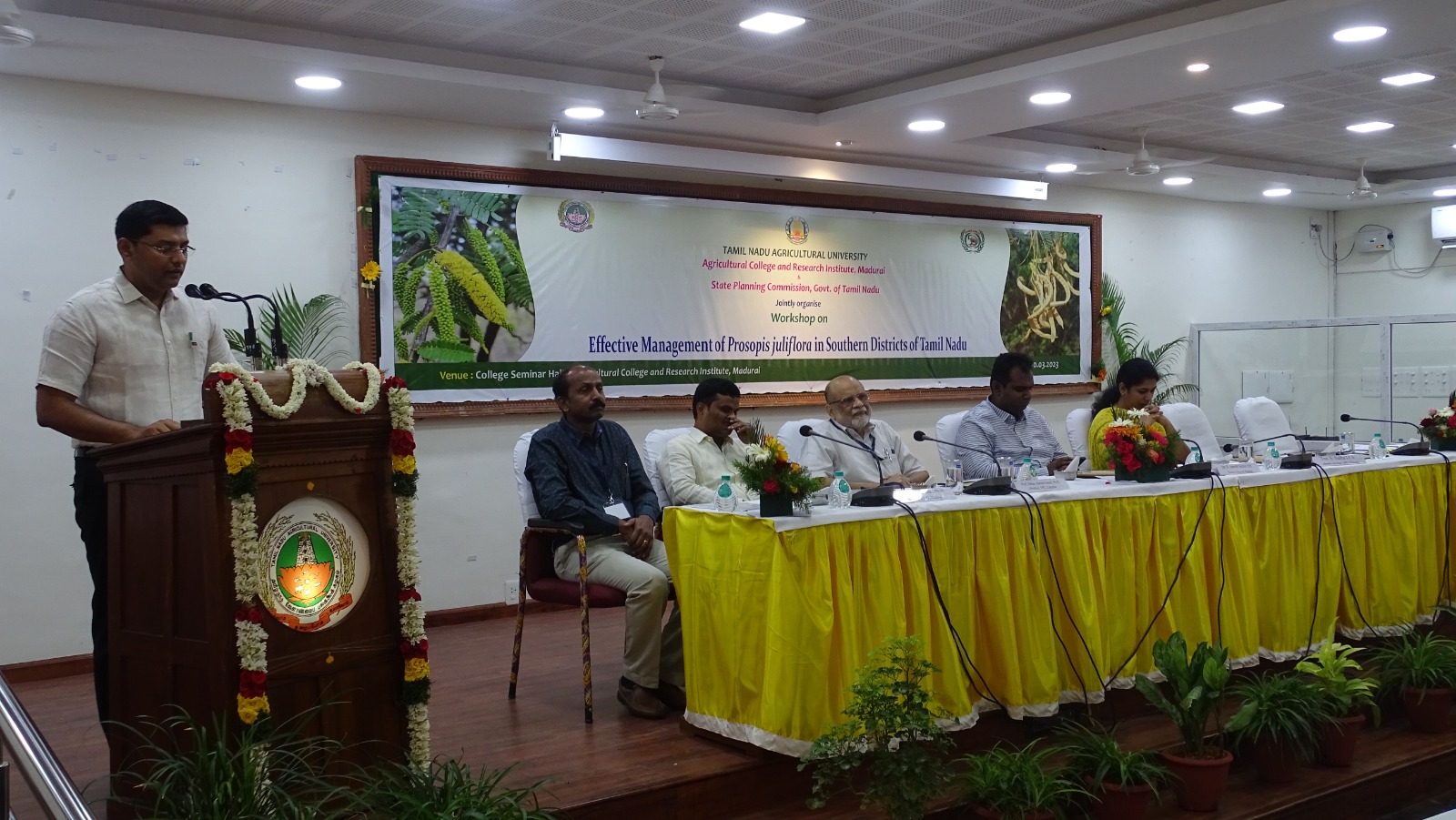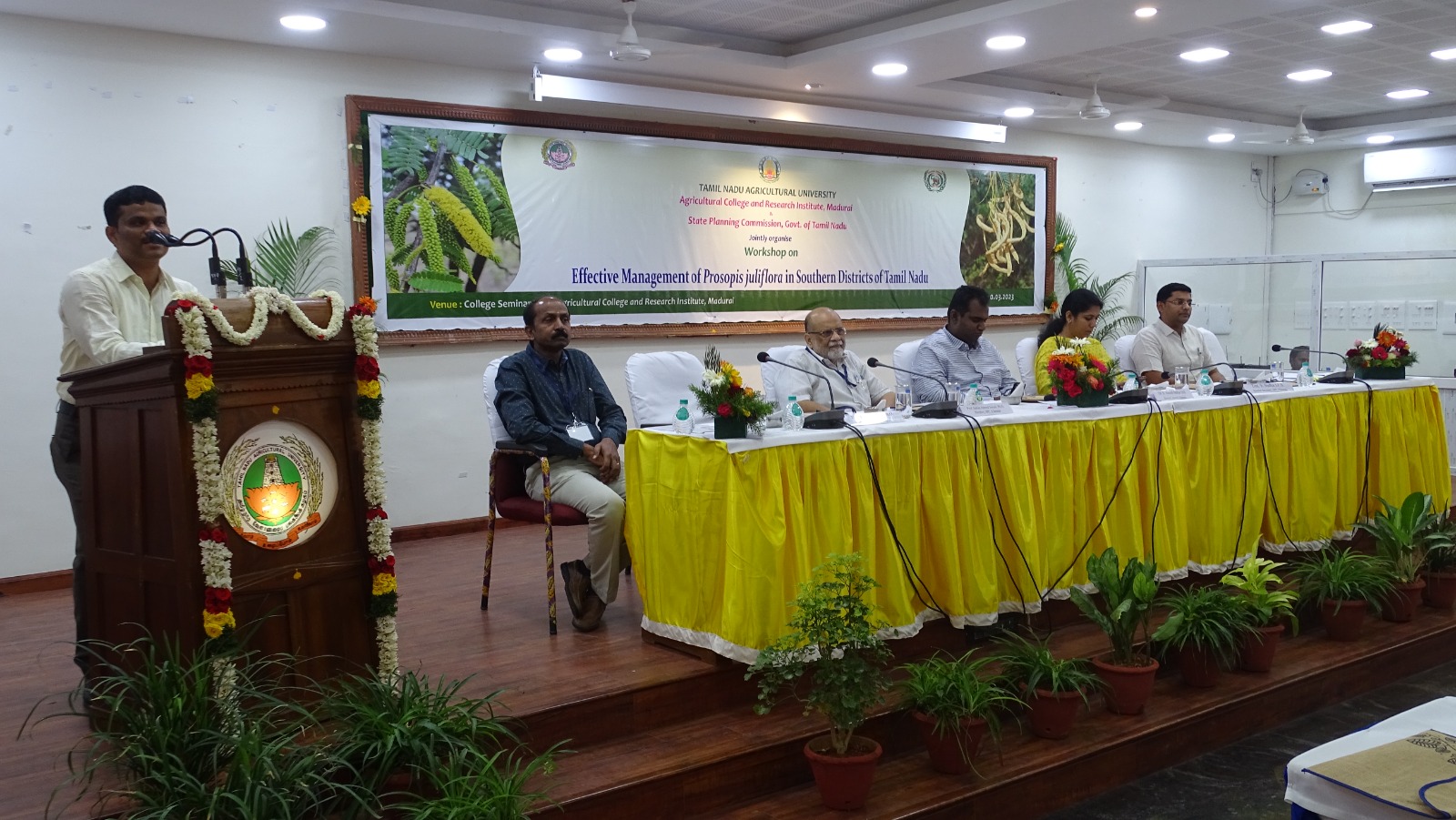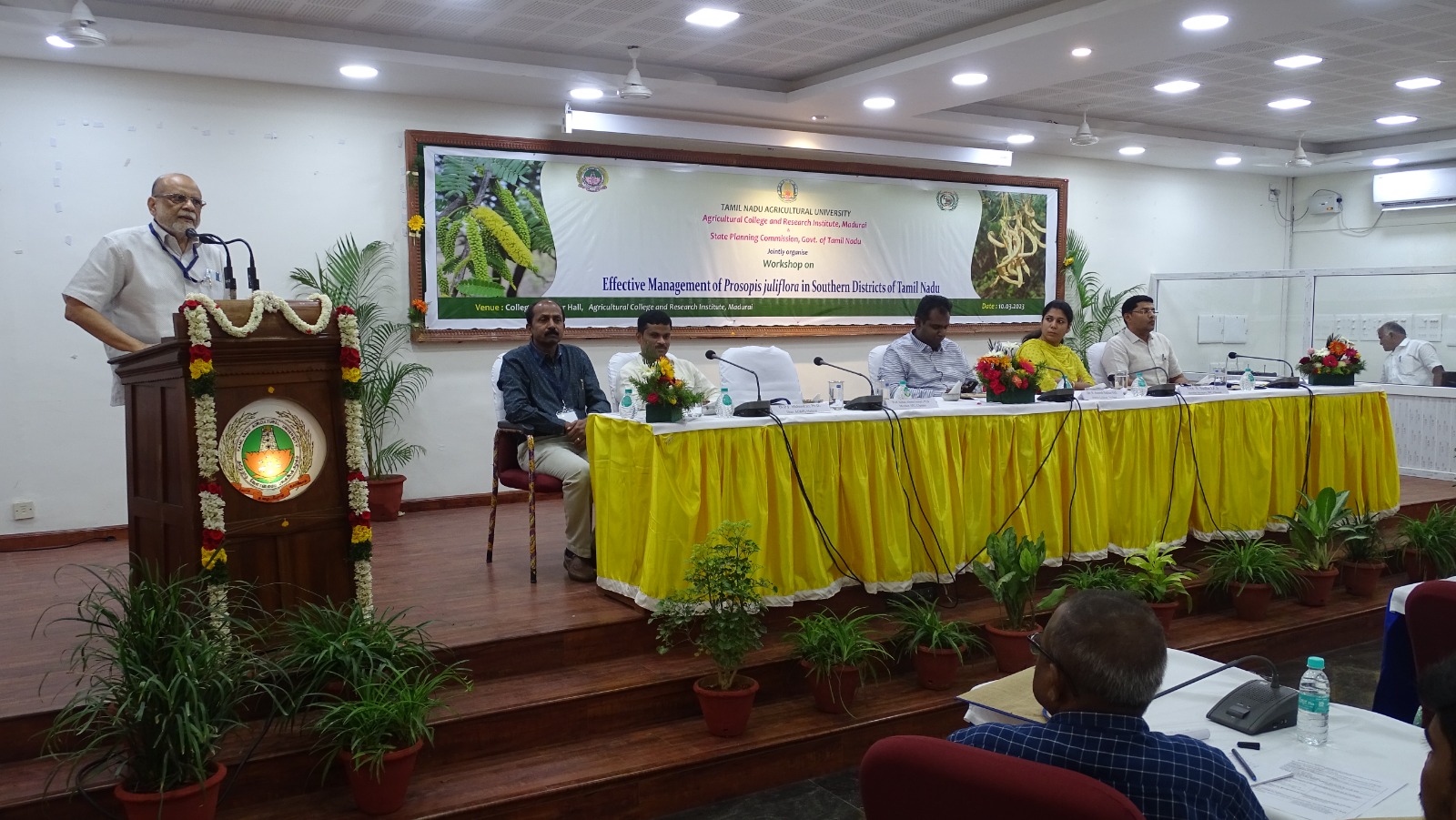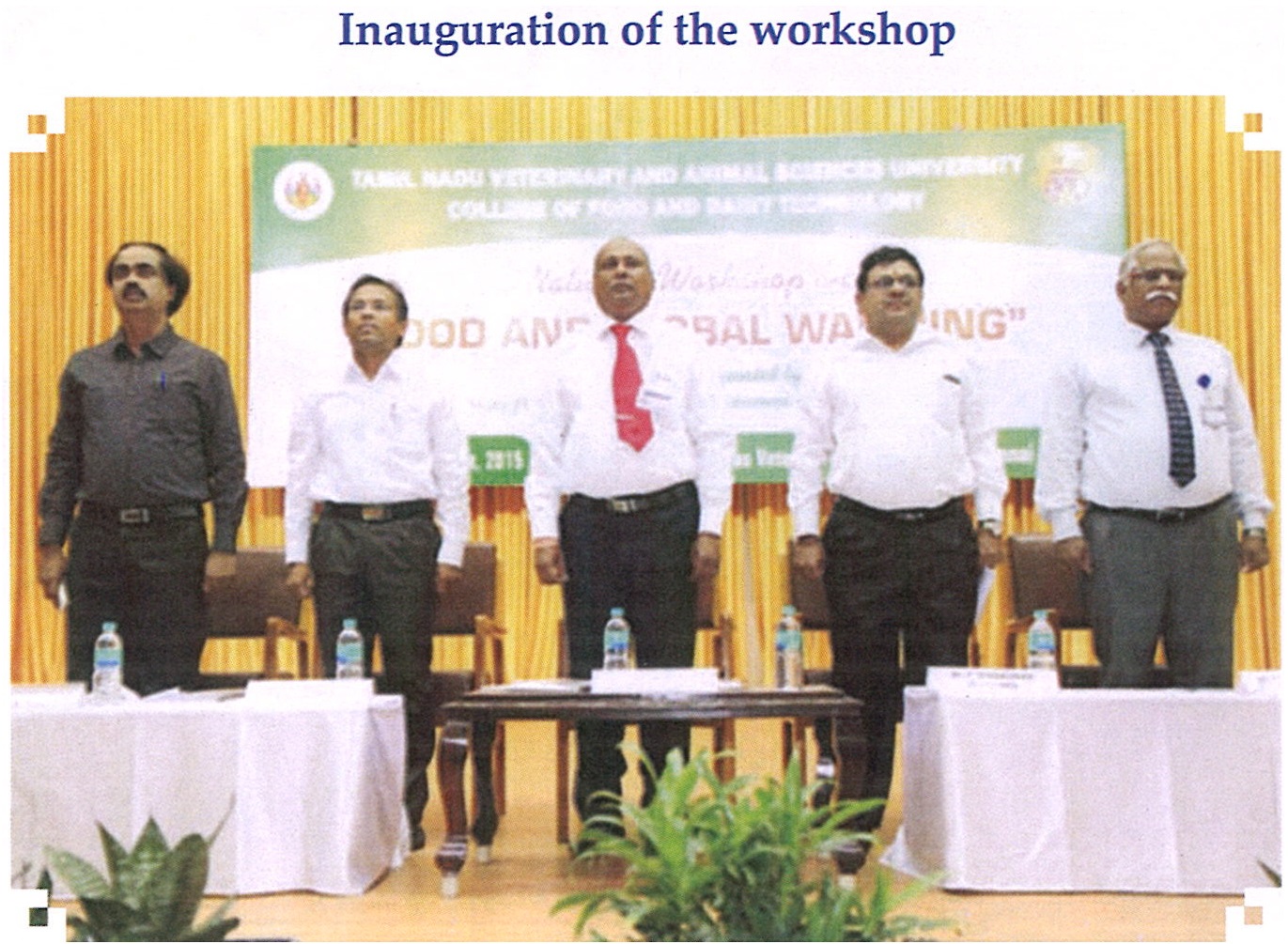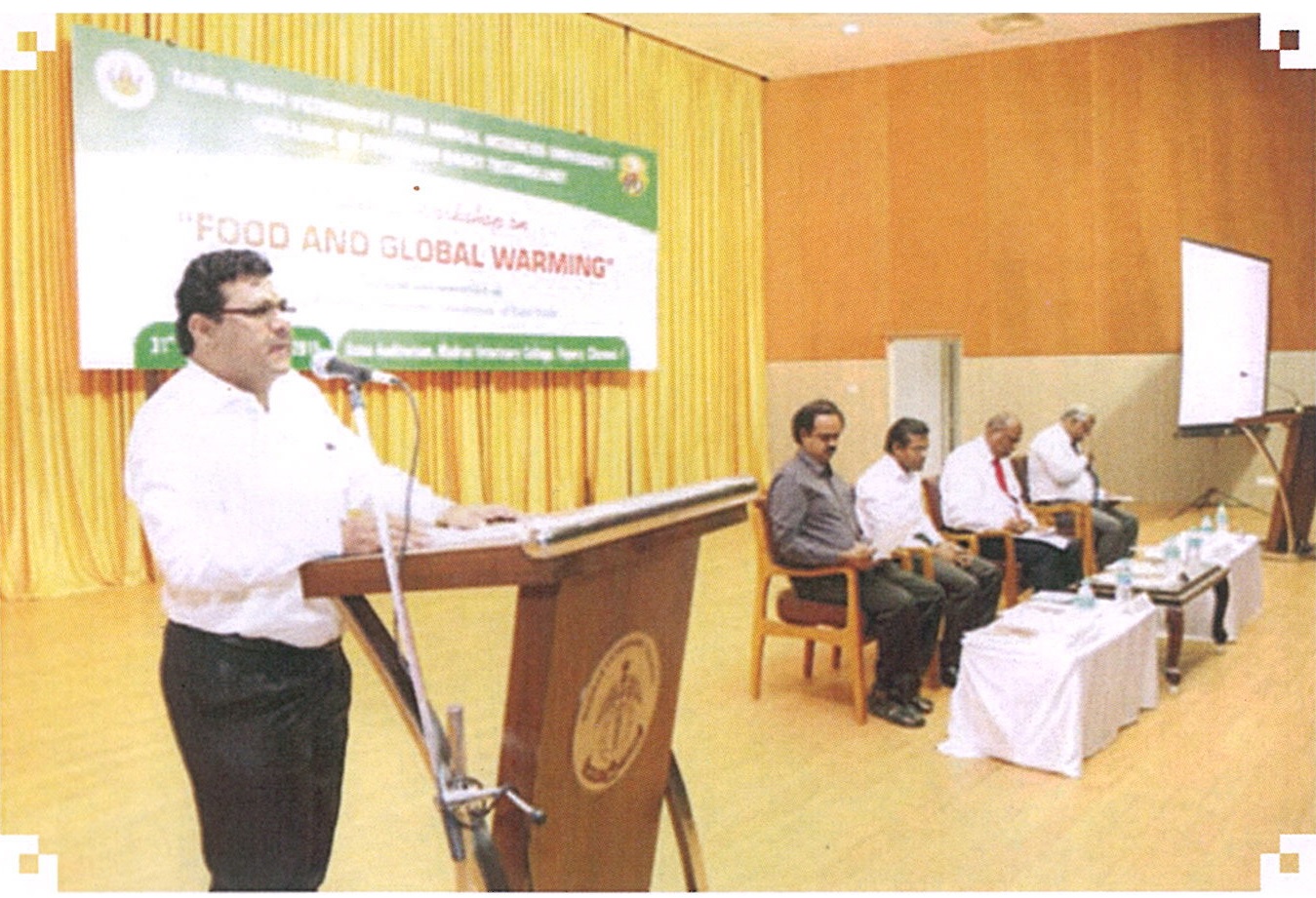Urban Heat Island-Hotspot Analysis and Mitigation Strategies for Tamil Nadu
Tamil Nadu faces growing heat stress challenges, with temperatures often surpassing the comfortable range of 25-30°C at 60% humidity. Nearly 59% of the population endures temperatures above 35°C, highlighting the critical need for heat resilience measures as climate change exacerbates these risks. To tackle this issue, Tamil Nadu has established the Heat Action Network, fostering inter-departmental and intersectoral collaboration for evidence-based and comprehensive heat mitigation.
Building on the Tamil Nadu Heat Mitigation Strategy, which outlines the increasing threat of extreme and prolonged heat waves, this report focuses on Urban Heat Island (UHI) effects across the state. It examines how urbanization and climate change combine to intensify localized heat stress. The report comprises two main components: “State-level and District-level Urban Heat Zones” and “City-level Hotspot Analysis,” followed by actionable recommendations for mitigation. The report equips Tamil Nadu to plan strategically for urban resilience. This approach aims to target resources and interventions effectively, reducing heat-related risks and building a more sustainable future.
Tamil Nadu State Planning Commission with the Tamil Nadu State Land Use Research Board, in collaboration with the United Nations Environment Programme , and CEPT University, has developed the “Urban Heat Island‑ Hotspot Analysis and Mitigation Strategies for Tamil Nadu” providing a systematic framework for understanding and mitigating urban heat impacts. The final report was presented to the Hon’ble Chief Minister of Tamil Nadu on December 16, 2024.
Tamil Nadu Heat Mitigation Strategy
Mitigation of Heat is linked with economic growth and is recognised as key to the health, wellbeing, and productivity of people in hot climates. India is a growing economy characterized by low penetration of air-conditioning, rising per capita income, rapid urbanization and a largely tropical climate all of which would lead to a rise in the requirement for cooling, which in turn increases the heat. Addressing the rising heat is both a challenge as well as a unique opportunity, necessitating synergies in policies and actions to mitigate the heat across sectors.
The strategies have been developed under the guidance of the State Planning Commission by involving the State Departments, research institutions, civil society organizations and institutions of national and international expertise.
This exercise was carried out with the support of Deputy British High Commission and engaged World Resource Institute (WRI) as a knowledge partner. The final report was submitted to the Hon’ble Chief Minister of Tamil Nadu.
Skill share on Low Emission Zone
The First consultation meeting was held at SPC on UK PACT Skill share project in collaboration with Deputy British High Commission and CENEX, UK. The stakeholder departments took participation in the meeting. CENEX made the presentation on the objectives and the key activities of the project. A consultative & Skill Share Workshop on
Low Emission Zoning was held on 09.10.2023 at 3:00 PM at Hotel Taj Connemara, Chennai, which was presided by the Vice Chairman, State Planning Commission. Mr. Oliver Ballhatchet British Deputy High Commissioner delivered the key activities of the UK PACT programme. A power point presentation was made by Mr. Steve Carroll, Head of Transport, CENEX on LEZ guidance and roadmap for its implementation in Chennai. A toolkit for Low Emission Zoning in Chennai has been crafted with the support of UK PACT programme by CENEX and the report was submitted to Hon’ble Chief Minister of Tamil Nadu.
Toolkit for Open and Sustainable City Planning and Analysis –TOSCA
GIZ (German Agency for International Cooperation), an organization funded by the German government has provided the TOSCA tool to the State Land Use Research Board. This tool is designed to facilitate research for urban planning and analysis. TOSCO helps to assist in software applications, guidelines, data sets, and methodologies to assist city planners, policymakers, and stakeholders in making informed decisions for sustainable urban development.
Sustainable Seaweed Farming in Tamil Nadu – Way Forward
Seaweed cultivation is an economically viable livelihood option for the coastal fishing community from various perspectives. Therefore, it is essential to explore all the scientific and economic aspects of seaweed cultivation so that a comprehensive policy and programmes can be evolved to facilitate the development of seaweed cultivation in Tamilnadu.
From this perspective, Tamil Nadu State Land Use Research Board, State Planning Commission in co-ordination with Dr. J. Jayalalithaa Fisheries University organized a workshop 20th January 2023 on “Sustainable Seaweed Farming in Tamil Nadu – Way Forward” by inviting various stakeholders, subject experts, and related institutions to discuss the different aspects of Seaweed cultivation and to get an insight on the best practices adopted in other states.
Workshop on Management of Forest Invasive Species
Invasive alien plant species are a major driver of biodiversity loss, posing significant threats to the health of the forests. Management of invasive alien plant species needs a focused and dynamic approach based on studies and field experiences. An understanding of changes in spatial and temporal distribution and abundance of invasive alien plant species is crucial.
To address this pressing issue, the State Planning Commission, in conjunction with the Tamil Nadu State Land Use Research Board and the Forest College & Research Institute, orchestrated the “International Workshop on Management of Forest Invasive Species” during 2nd and 3rd February 2023 at Mettupalayam
The workshop urges the departments concerned to identify the baseline, carry out assessment using standard scientific methods using geospatial technology, and develop a strategy using the decision support system.
Effective Management of Prosopis juliflora in Southern Districts of Tamil Nadu
Prosopis juliflora is one of the worst invaders affecting natural and man-made ecosystems and local biodiversity in Tamil Nadu. Therefore, complete eradication of P. juliflora is deemed necessary across the state. With this view, the Tamil Nadu State Land Use Board, State Planning Commission and Agricultural College and Research Institute, Tamil Nadu Agricultural University jointly organized a workshop on 10th March 2023, inviting various stakeholders, subject experts, and related institutions to discuss the possible management of Prosopis juliflora and gain insight into best practices adopted in other states.
It was also discussed on optimizing the use of Prosopis, providing livelihood opportunities, achieving sustainability, protecting biodiversity, framing policies, and drawing effective management strategies. Positive and negative implications of Prosopis juliflora on the environment, health, livelihood, ecosystem services, and socio-economic activities were discussed in detail to develop strategies for effective management of Prosopis juliflora.
Reducing Emission Through Increasing Green Cover and Carbon Sink in Tamil Nadu
Webinar and Workshop were conducted by Centre for Climate Change and Disaster Management, Anna University under the ages of Tamil Nadu State Land Use Board, State Planning Commission during January 2022 and February 2022.
This workshop focussed on addressing climate change through the goals of the Green India Mission (GIM). The program aimed to enhance carbon sequestration (storage) and improve the adaptability of ecosystems and communities facing climate change. Two events were held: a webinar
Water Foot Print and Water Conservation Methods for the Livestock Farmers
This workshop was conducted by Tamil Nadu Veterinary and Animal Sciences University ( TANUVAS) under the ages of Tamilnadu State Land Use Board, State Planning Commission during September 2021 and December 2021
The objective of the workshop is to create awareness on water availability and utilization patterns in livestock farming systems and to sensitize the farmers and entrepreneurs on efficient water usage and water conservation methods in various livestock farming systems.
Workshops on Revisiting the Tamil Nadu State Action Plan on Climate Change Strategies
The aim of the workshop is to create a platform for discussing and revisiting the Tamil Nadu State Action Plan for Climate Change strategies under each of the identified vulnerable sectors and to update the sectors accordingly.
The Department of Environment, being the nodal agency had drafted the Tamil Nadu State Action Plan on Climate Change which was endorsed by the Ministry of Environment, Forest and Climate Change, Government of India on 31.03.2015 and also conducted the workshop on all the identified sectors.
Soil-Fodder-Livestock Interface to Augment Productivity - for 16 Districts (Phase-I)
To sensitize farmers to improve the soil and fodder production possibilities in integrated crop-livestock systems, workshop on “Soil-Fodder-Livestock interface to augment productivity” was conducted by Tamil Nadu State Land Use Board jointly with Tamil Nadu Veterinary and Animal Sciences University during July 2015 to August 2015. It was conducted in 16 districts viz., Ariyalur, Cuddalore, Dharmapuri, Kancheepura, Krishnagiri, Nagapattinam, Perambalur, Pudukottai, Ramanathapuram, Salem, Sivagangai, Thanjavur, Thiruvallur, Thiruvarur, Vellore & Villupuram The Nilgiris, Coimbatore, Tiruppur, in Tamil Nadu. In each district 50 farmers were sensitized to a total of 800 farmers.
Soil-Fodder-Livestock Interface to Augment Productivity - for 16 Districts (Phase-II)
To sensitize farmers to improve the soil and fodder production possibilities in integrated crop-livestock systems, workshop on “Soil-Fodder-Livestock interface to augment productivity” was conducted by Tamil Nadu State Land Use Board jointly with Tamil Nadu Veterinary and Animal Sciences University during August 2015 to September 2015.
In the Phase – II programme, 16 districts viz., Chennai, Coimbatore, Dindigul, Erode, Kanyakumari, Karur, Madurai, Namakkal, the Nilgiris, Theni, Trichy, Tiruvannamalai, Thoothukudi, Tirunelveli, Tirupur & Virudhunagar in Tamil Nadu. In each district 50 farmers were sensitized to a total of 800 farmers.
National Workshop on Food and Global Warming
A national workshop on “Food and Global Warming” was held by Tamil Nadu State Land Use Board jointly with College of Food and Dairy Technology, Koduvalli during 31st July 2015 and 1st August 2015.
This workshop aims to address food-related issues in global warming by judicious use of renewable energy sources like solar and biogas. Utilization of bioplastics, non-thermal food processing, and effective by-product utilization resulted in a considerable reduction in emission of greenhouse gases
Intensification of Fodder Production System at Salem District of Tamil Nadu
To contribute significantly to increase the availability of fodder and to enhance the animal production, a workshop on “Intensification of Fodder Production System” at farmer level was conducted by the Tamil Nadu State Land Use Board, State Planning Commission in collaboration with Veterinary University Training and Research Centre, Sale on during 2014
The objective of the workshop is to motivate dairy farmers to adopt sustainable scientific practices in fodder production through training and to augment fodder production in the project area through the establishment of fodder seed bank at farmer’s field and to enhance farm income through increased production and productivity of the animal.
Waste Dumpsites of Chennai Present Scenario and Future Work Plan
The workshop aims to discuss the overall impact of dumping domestic waste in and around Chennai with special reference to the impact of leachate percolation on the quality of the groundwater and sediments. The workshop had representation from a majority of the groups who are involved with waste disposal and related studies.
Keeping the importance of Solid Waste Management for the society a one day workshop was organised by Department of Applied Geology, University, Chennai to discuss the present status and future work plan in the light of new advances in science and data from dump sites of Chennai.
Watershed Management programmes in Tamil Nadu :Lessons & Issues
The objective of the workshop was to take stock of the watershed development and watershed management programs that were being implemented in the State of Tamil Nadu and to prepare a road map for the years to come.
A two-day workshop on watershed management programs in Tamil Nadu was jointly organised by the Tamil Nadu State Land Use Research Board (TNSLURB) under the aegis of the State Planning Commission, and the Centre for Water Resources, Anna University, Chennai on 11th and 12 July 2013. Stakeholders from the Government Agencies, non-governmental organisations, academic institutions and research scholars have deliberated to develop better planning and implementing strategies.
Integrated Farming System for Sustainable Farming
The workshop in Kanchipuram district focused on promoting sustainable farming through Integrated Farming Systems (IFS). It aimed to combine crop production, livestock, and potentially fishery operations for resource efficiency. Participants were educated on organic practices like composting crop residue. The goal was to empower resource-poor communities and improve livelihoods by adopting suitable farming models for different conditions.
A two-day training programme on “Integrated Farming System for Sustainable Farming” was conducted at Krishi Vigyan Kendra, Kattupakkam on 26.06.13 and 27.06.13 to motivate and develop skills among rural farmers to generate self-employment through Integrated Farming System.
Seminar cum Training on Intensive Fodder Production for Augmenting Livestock Production
The workshop in Kanchipuram focused on addressing limited green fodder for livestock by educating farmers on cultivating fodder crops. It emphasized year-round feed availability through growing legumes and non-legumes. Participants learned production techniques and the creation of fodder seed banks. The program also advocated for utilizing uncultivated land for pastures to improve grazing options.
A two-day training programme on “Intensive Fodder Production for Augmenting Livestock Production” was conducted at Krishi Vigyan Kendra, Kattupakkam on 12.06.2013 and 13.06.2013 to create awareness on Green Fodder production among livestock farmers to cultivate fodder throughout the year.
